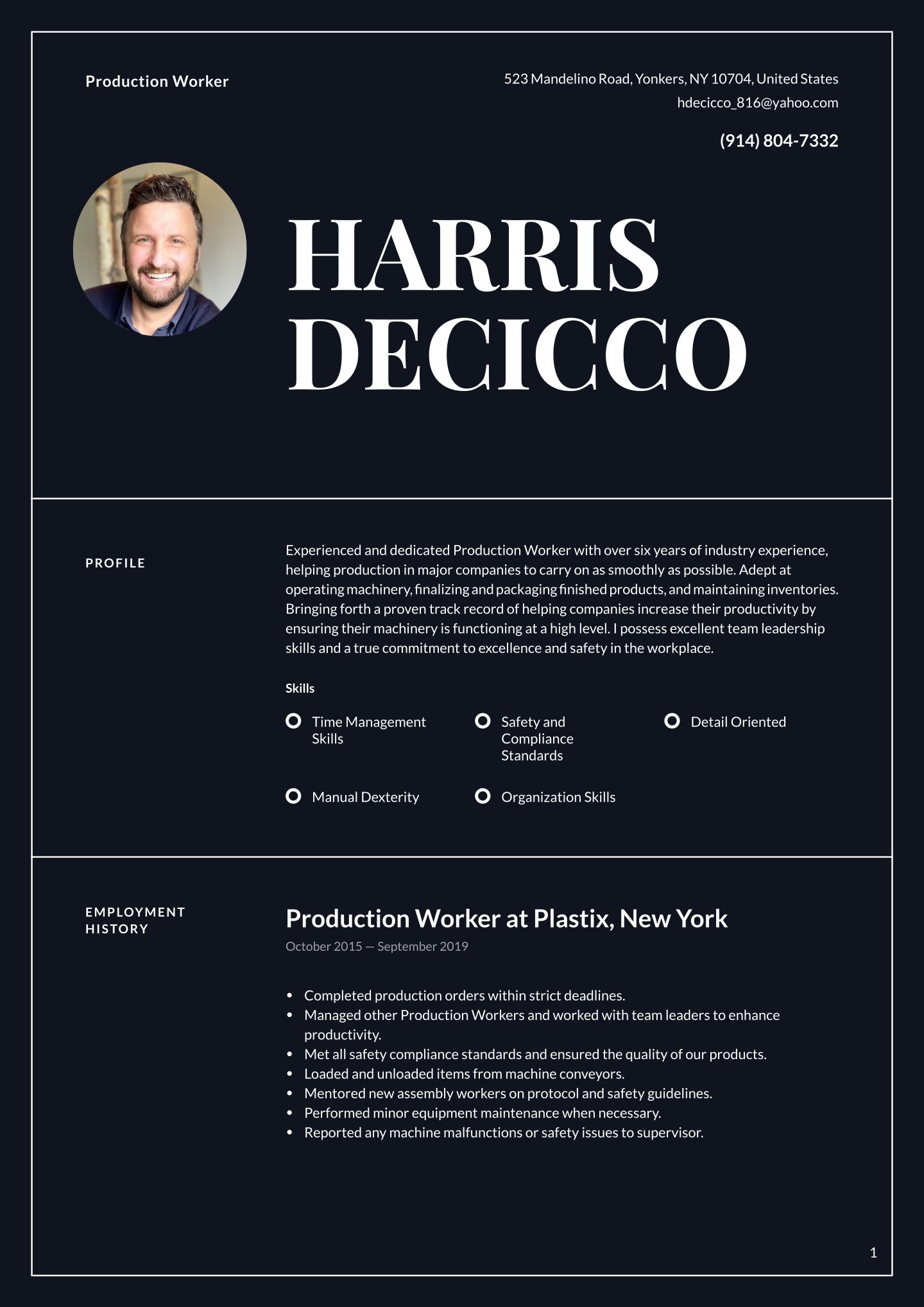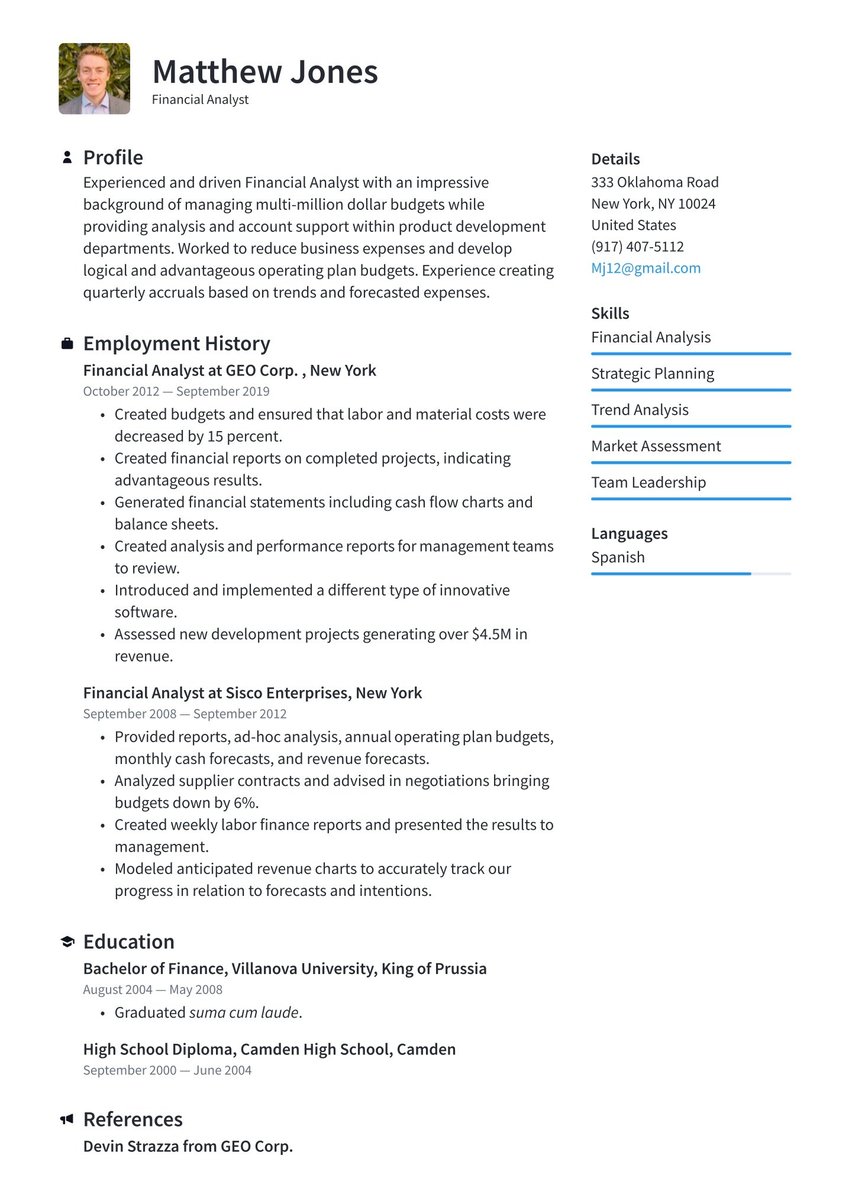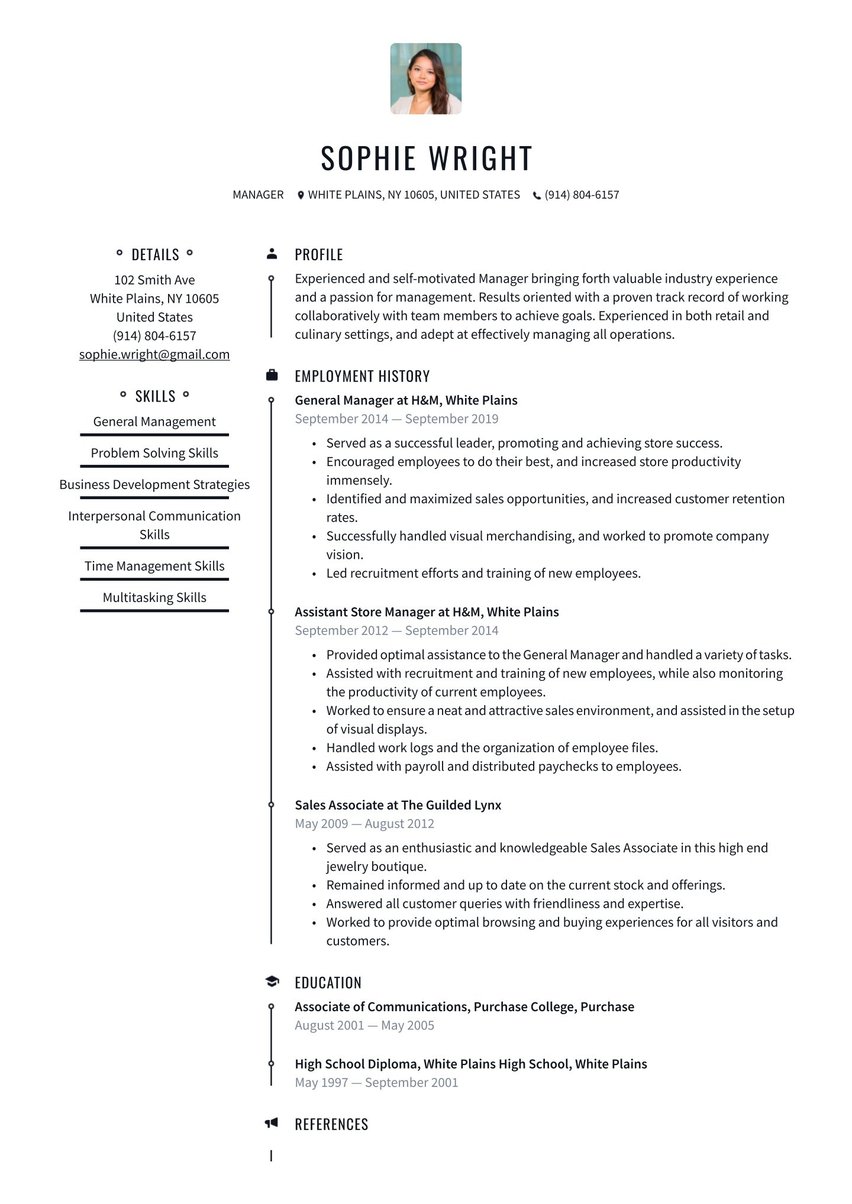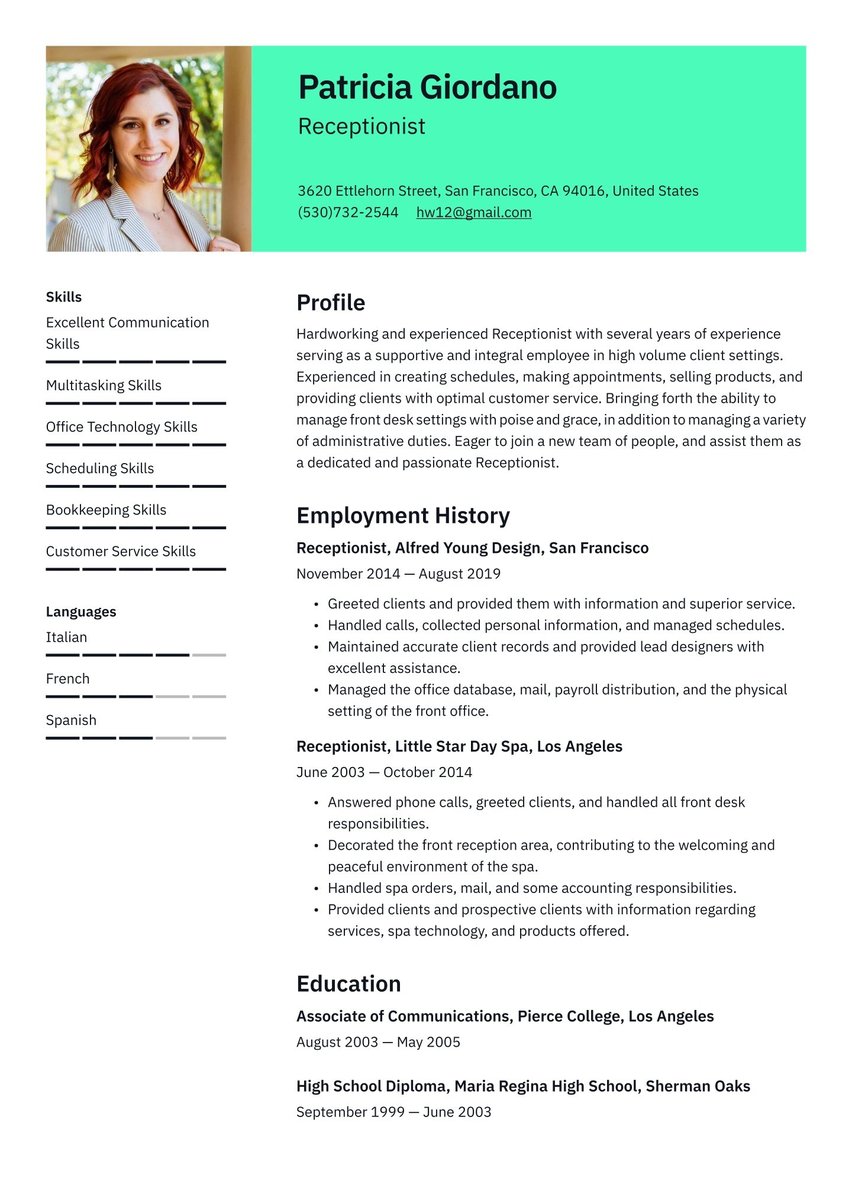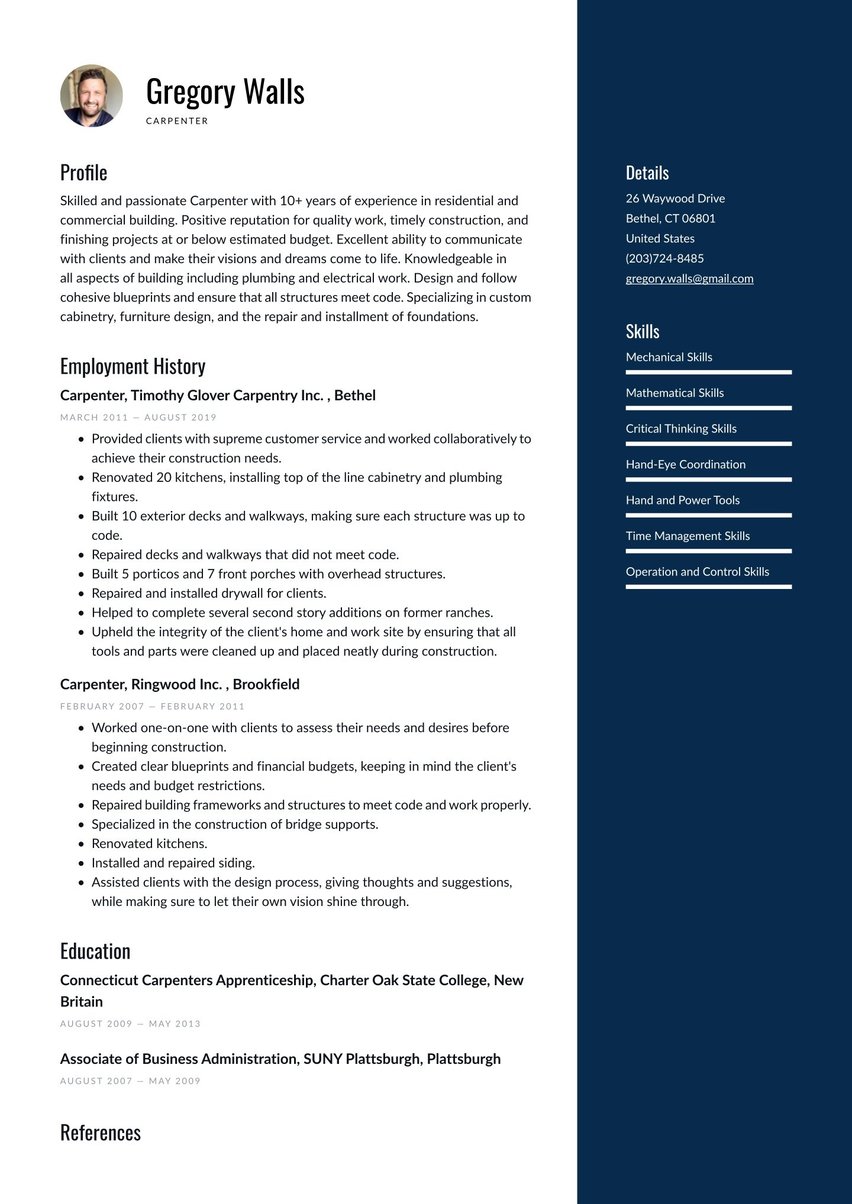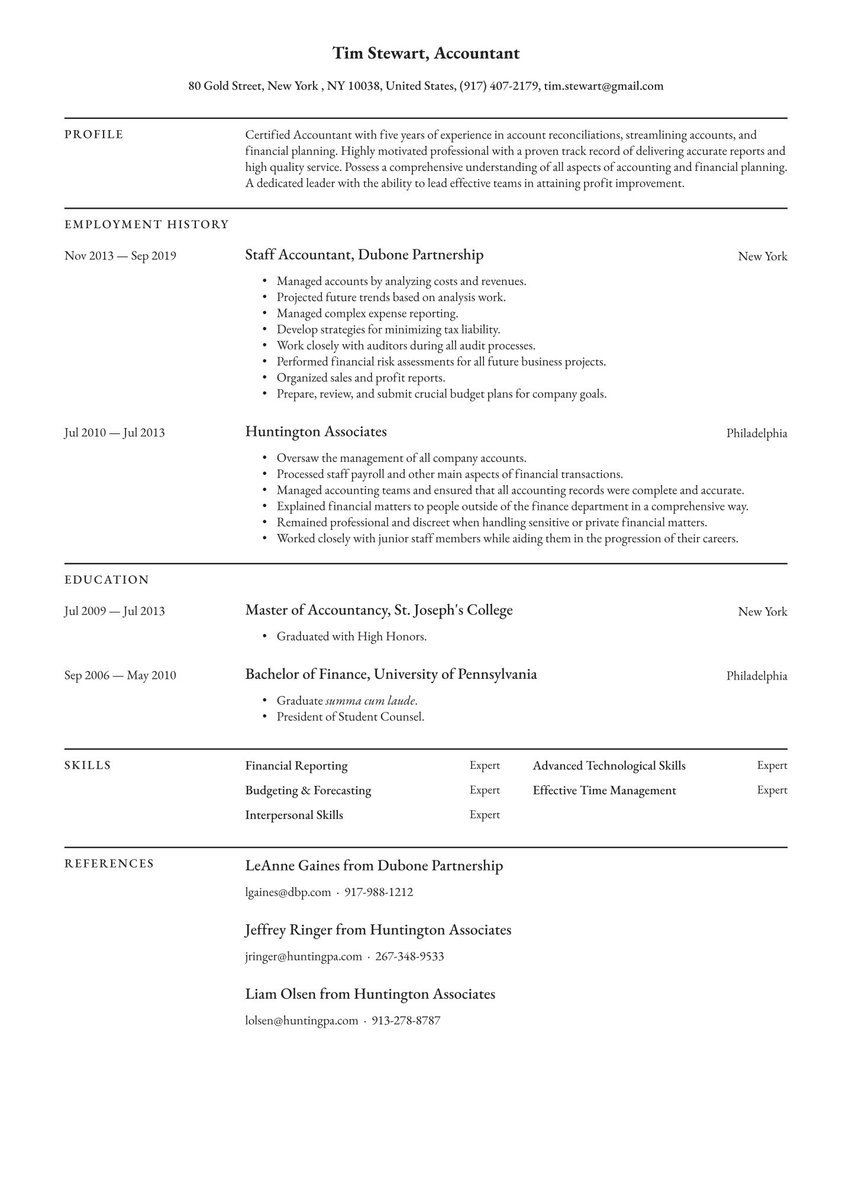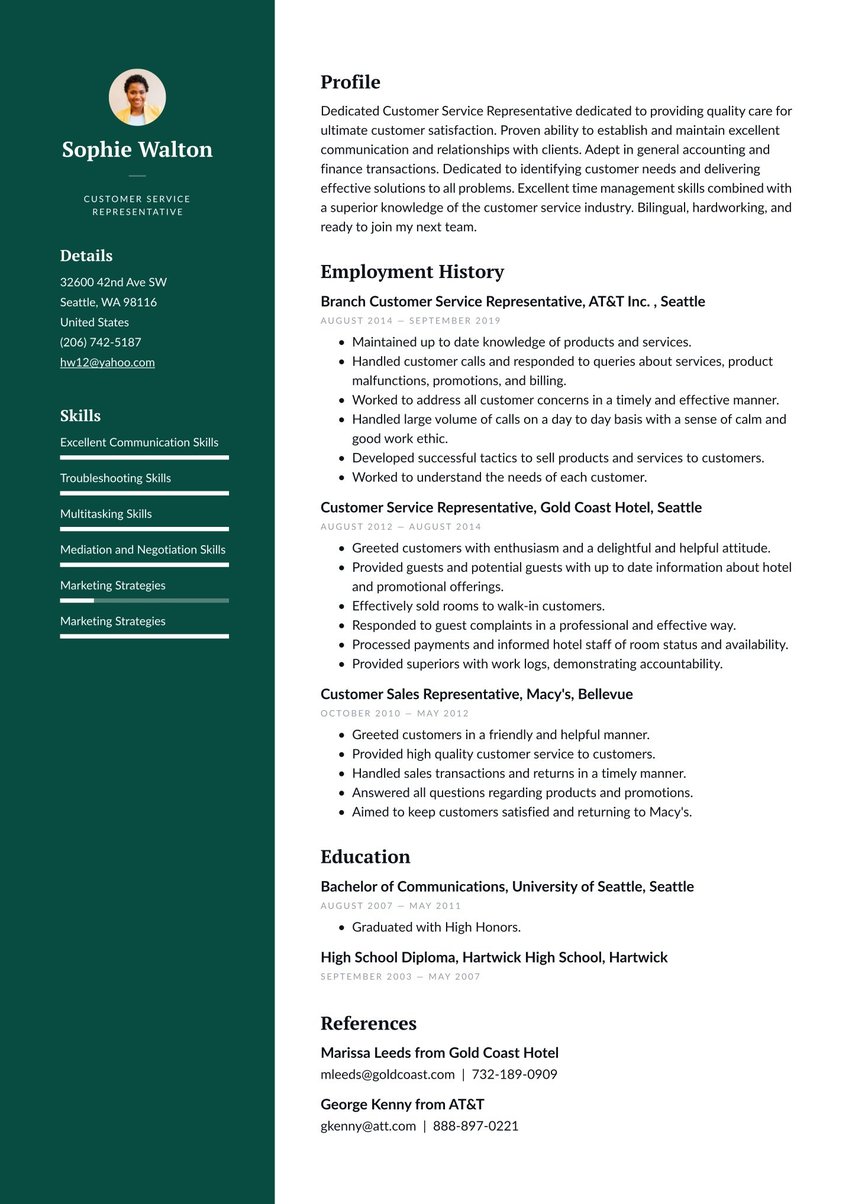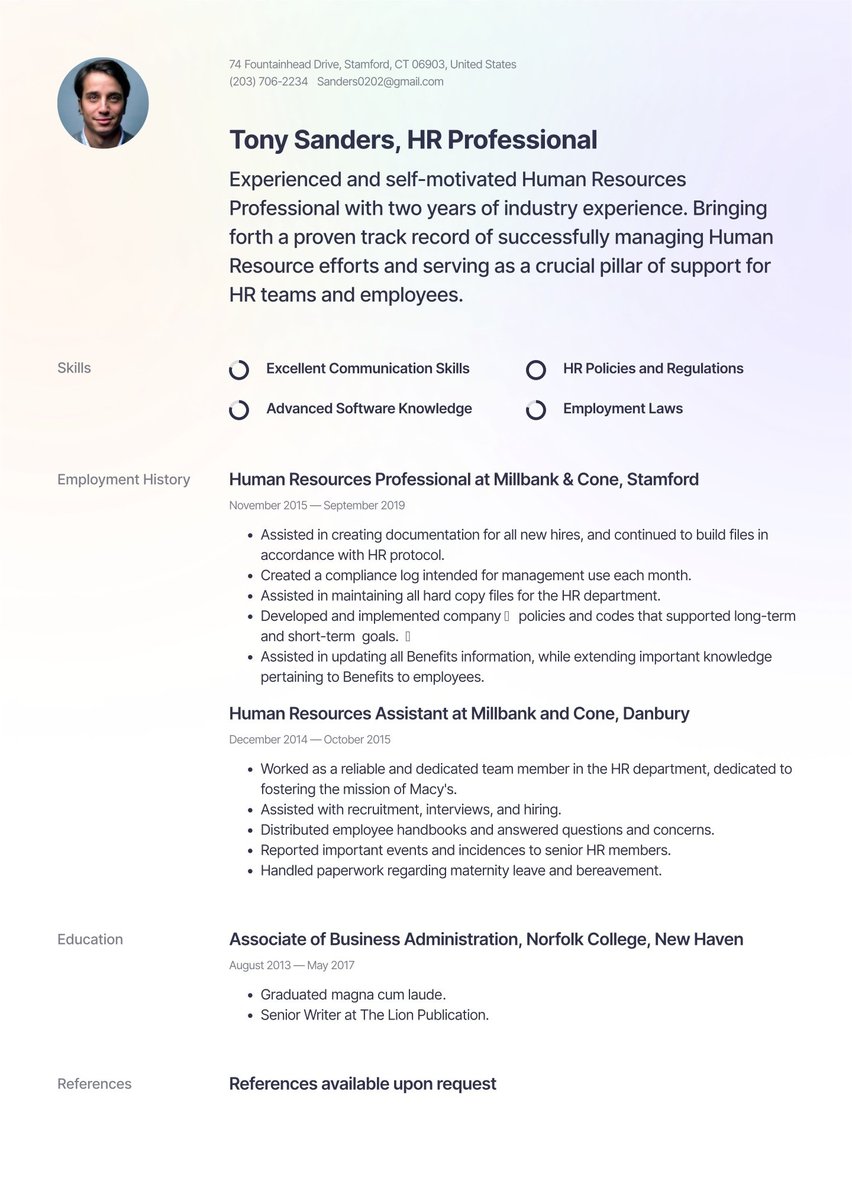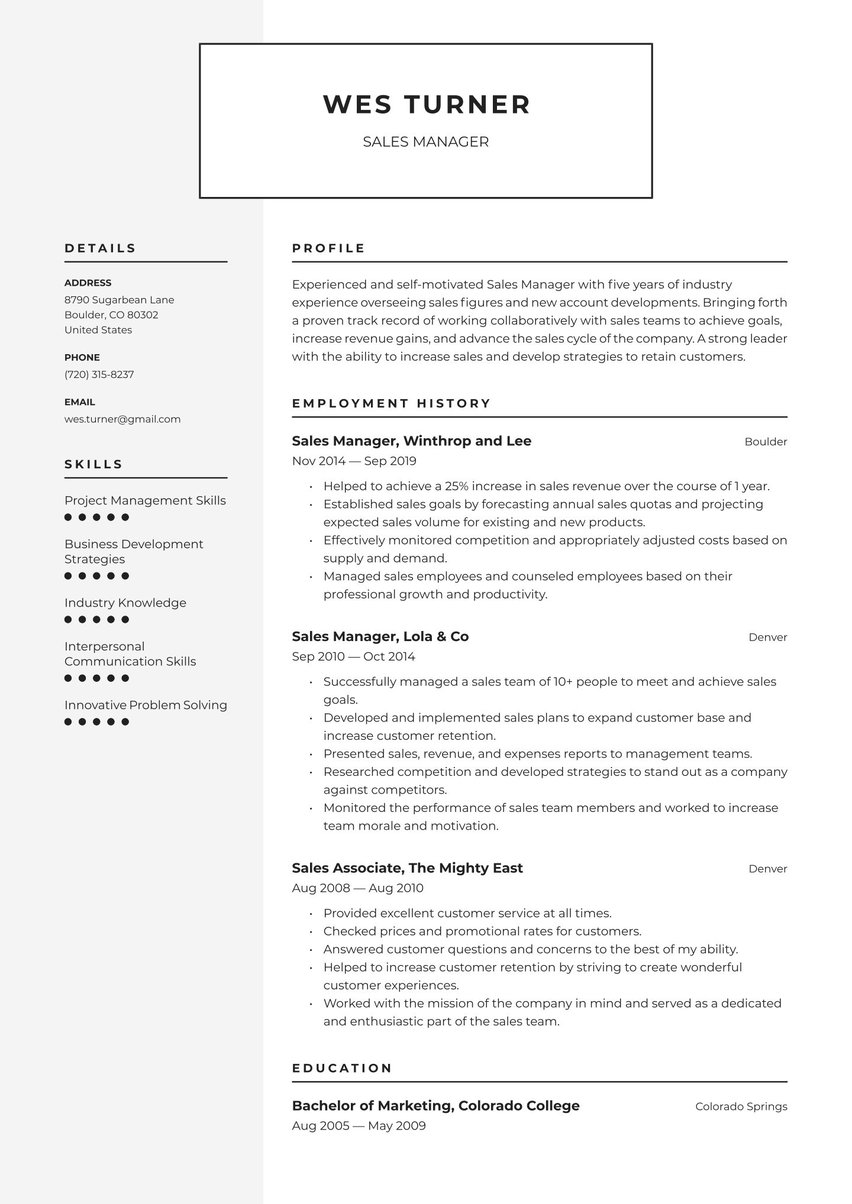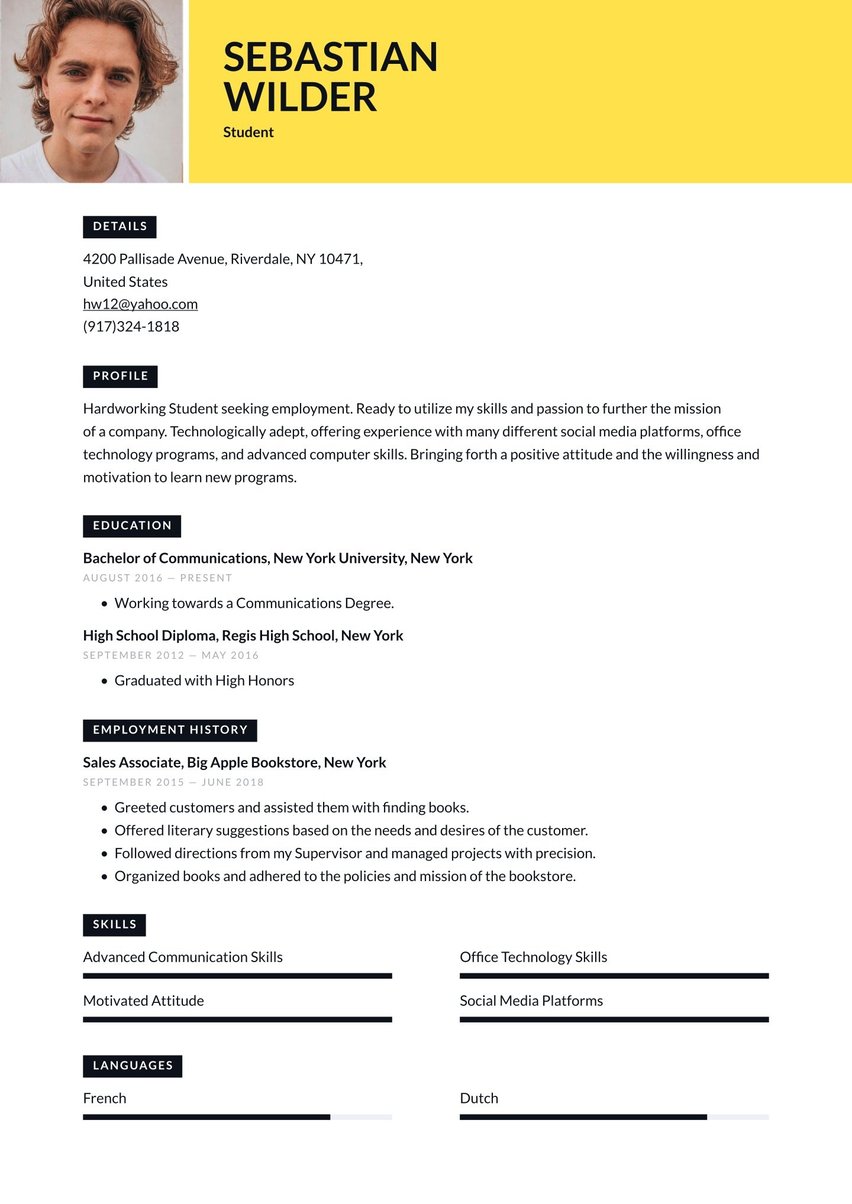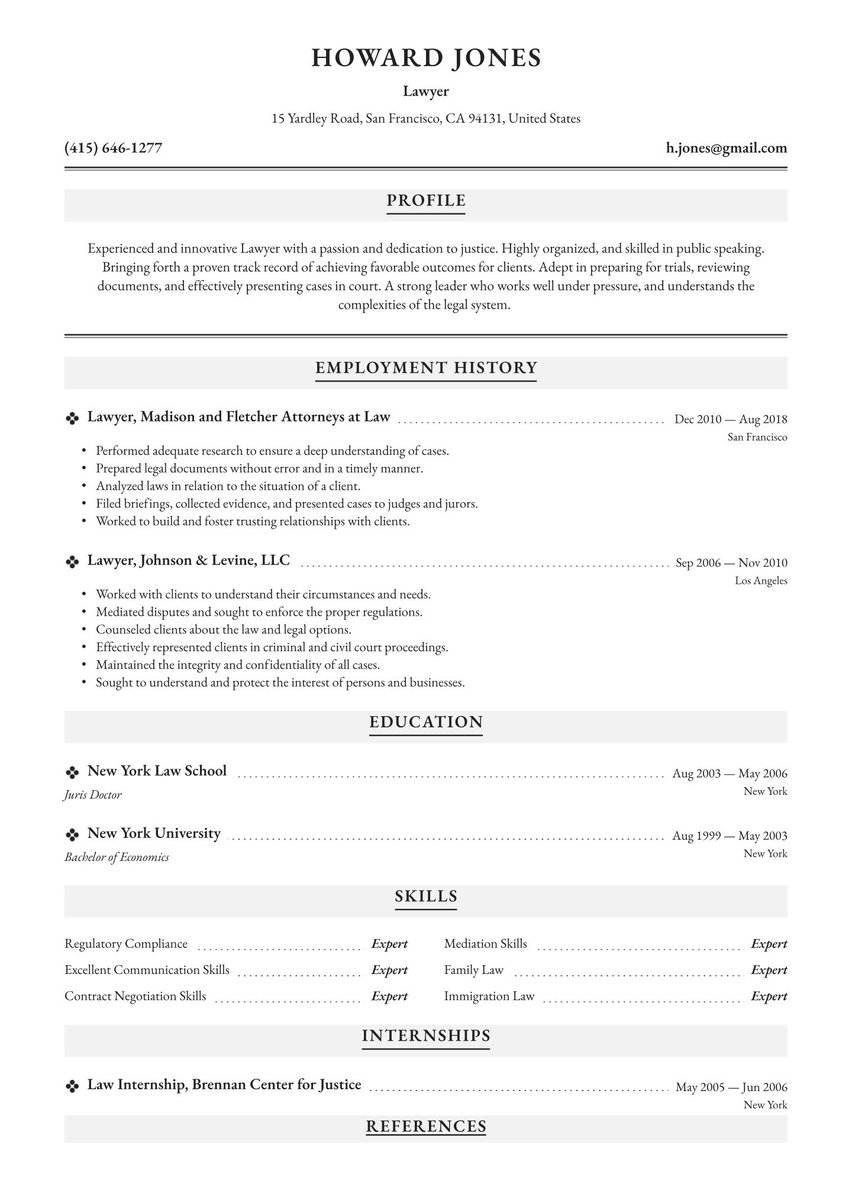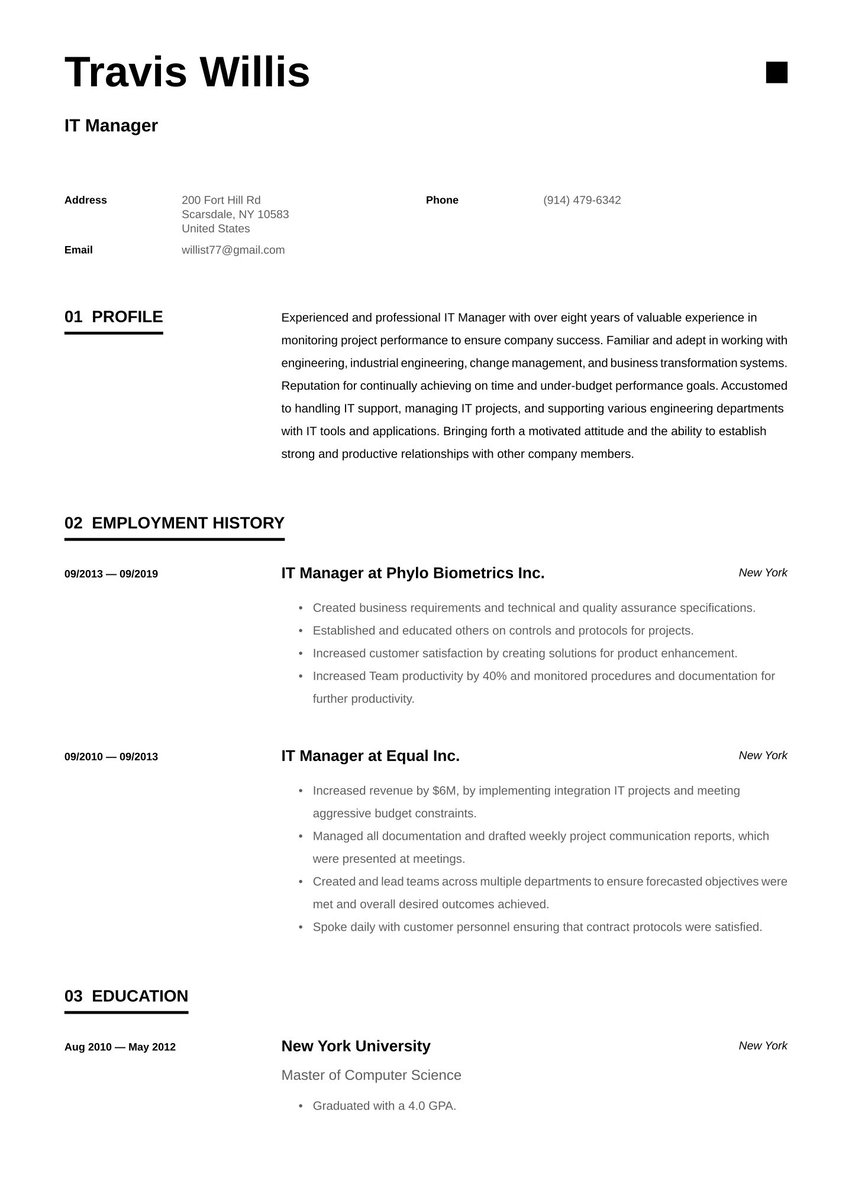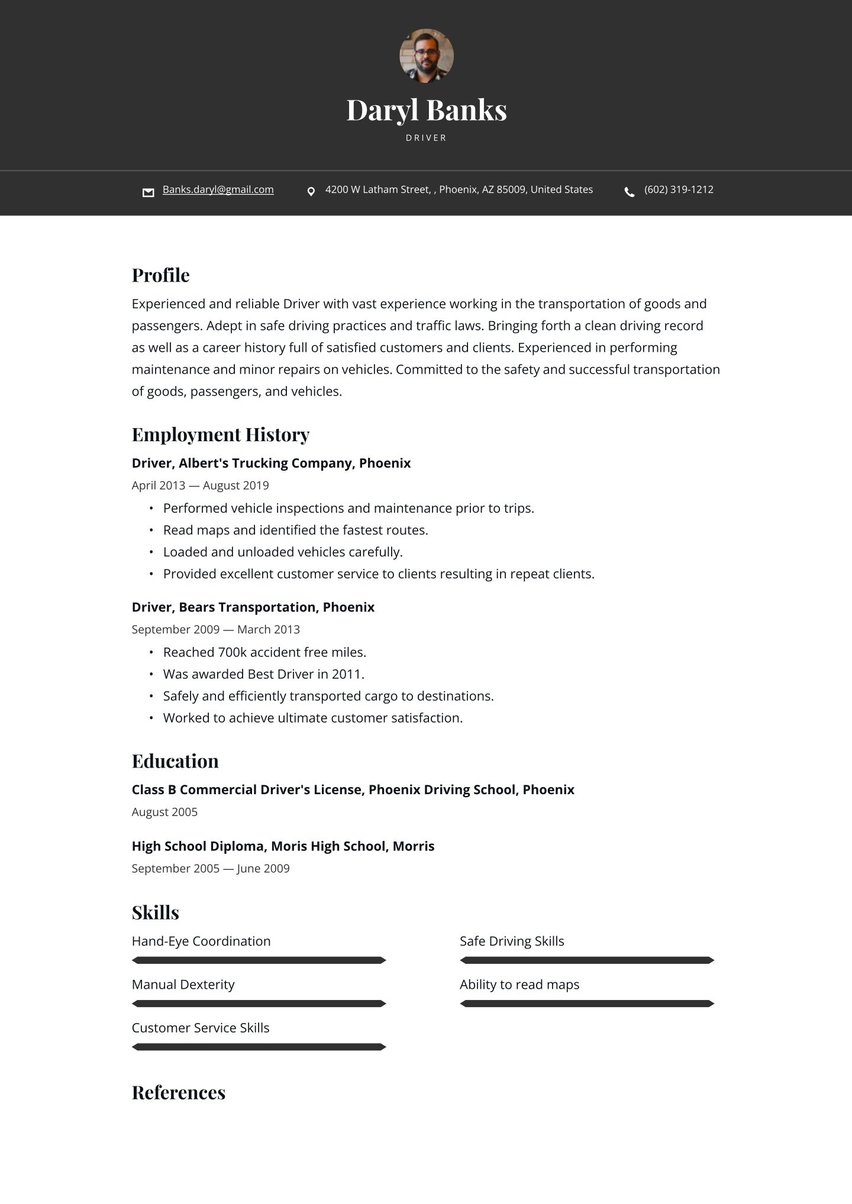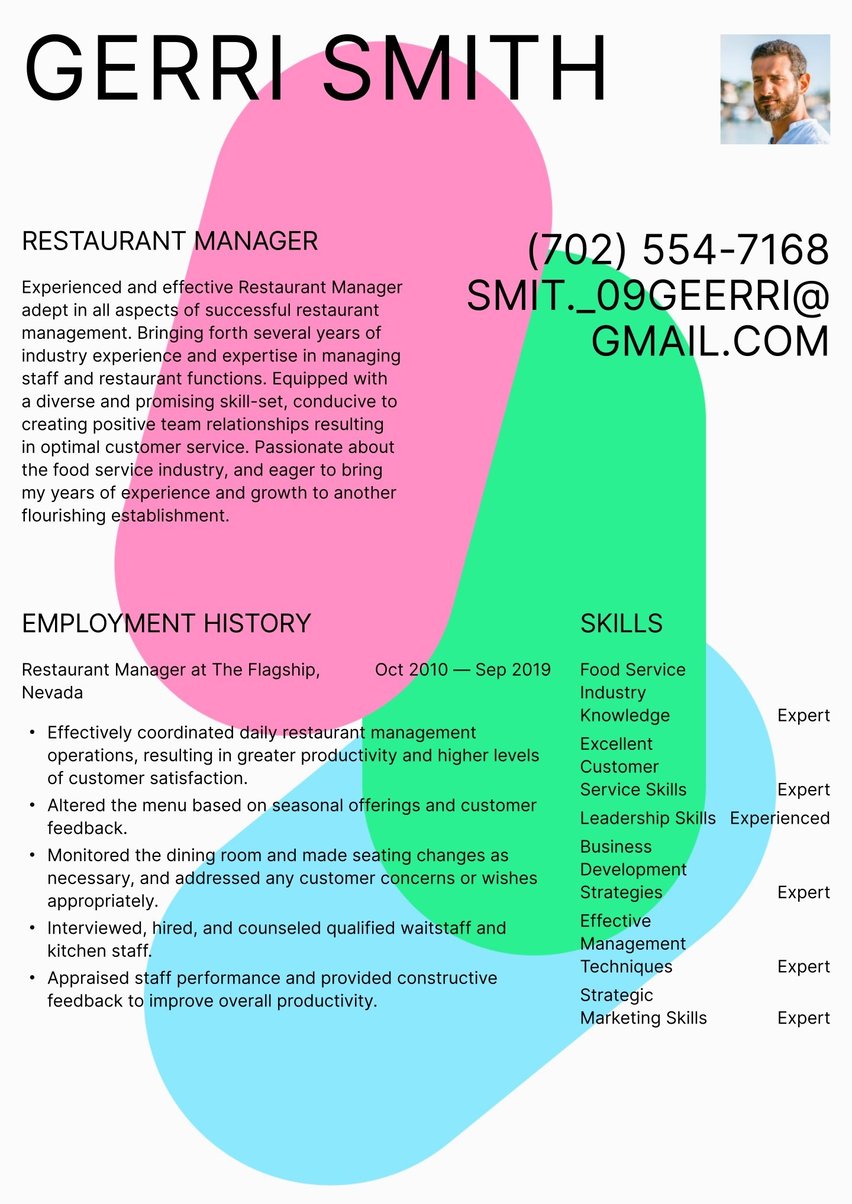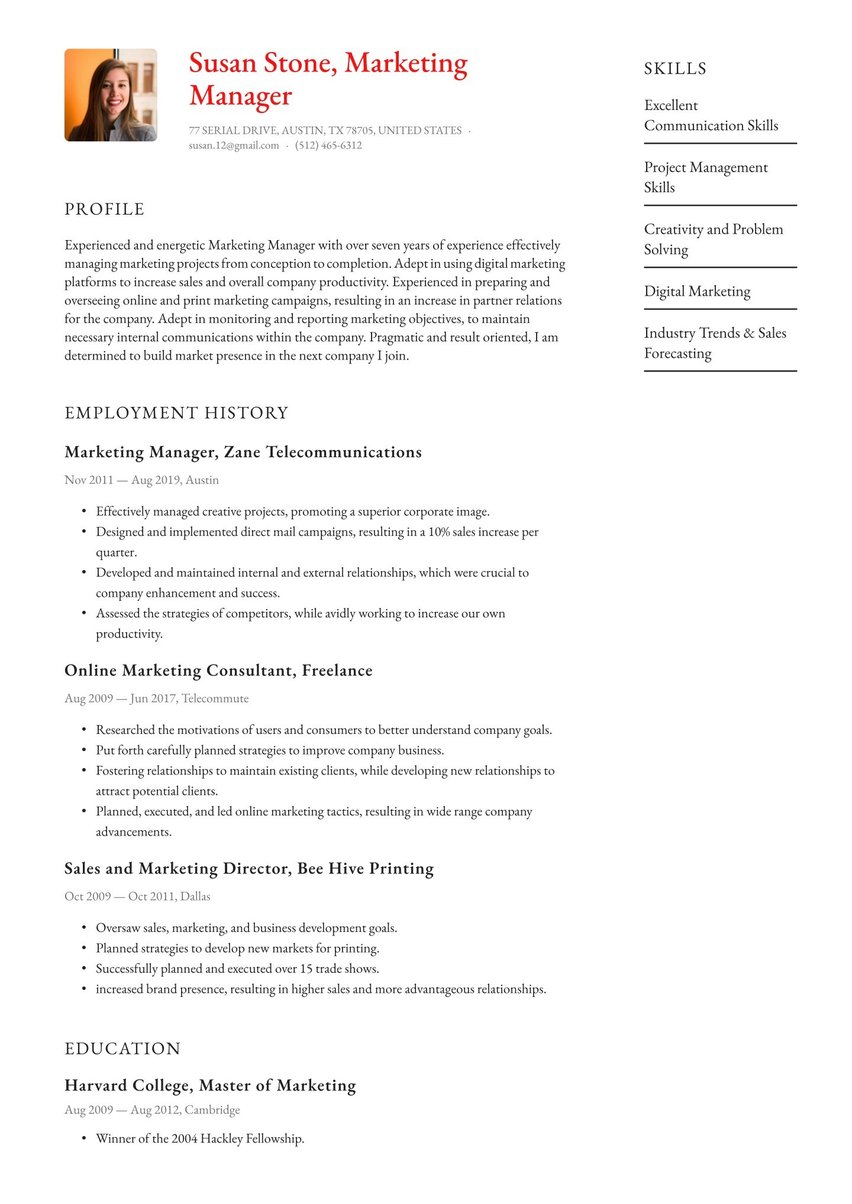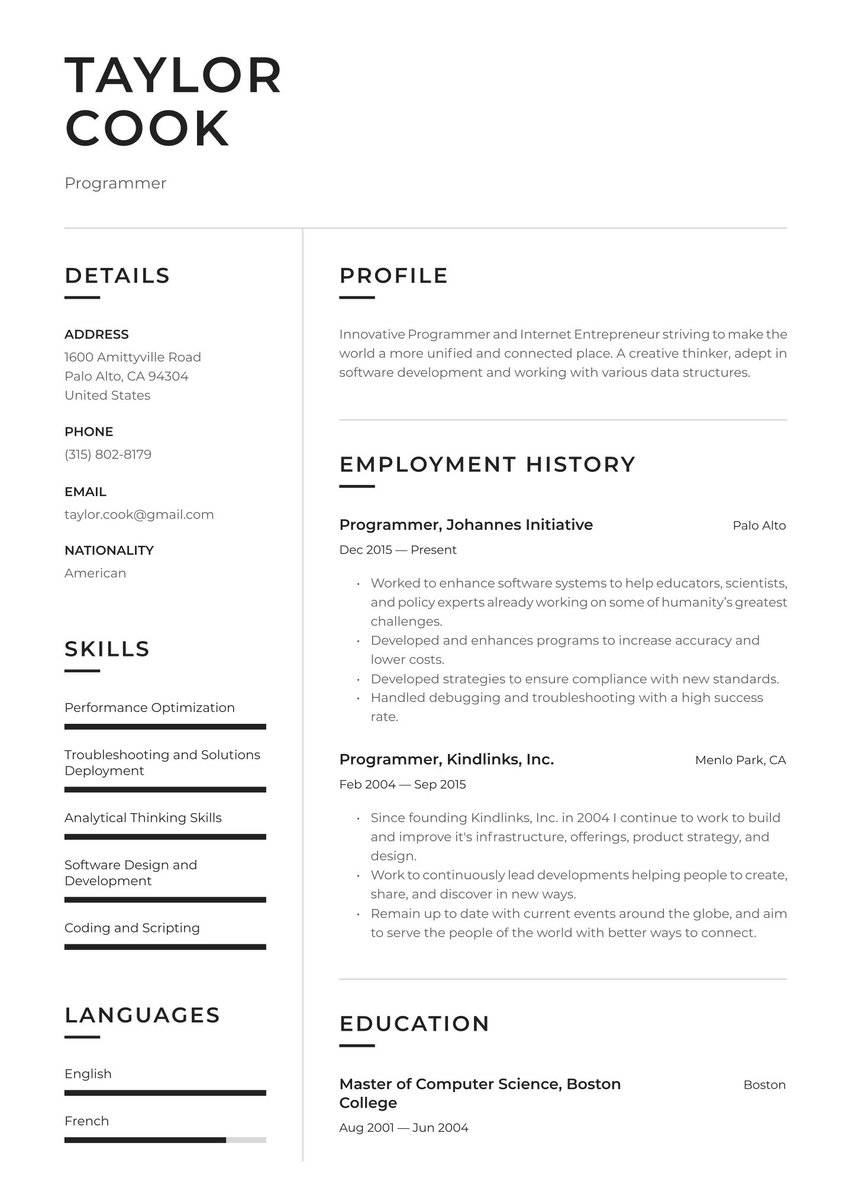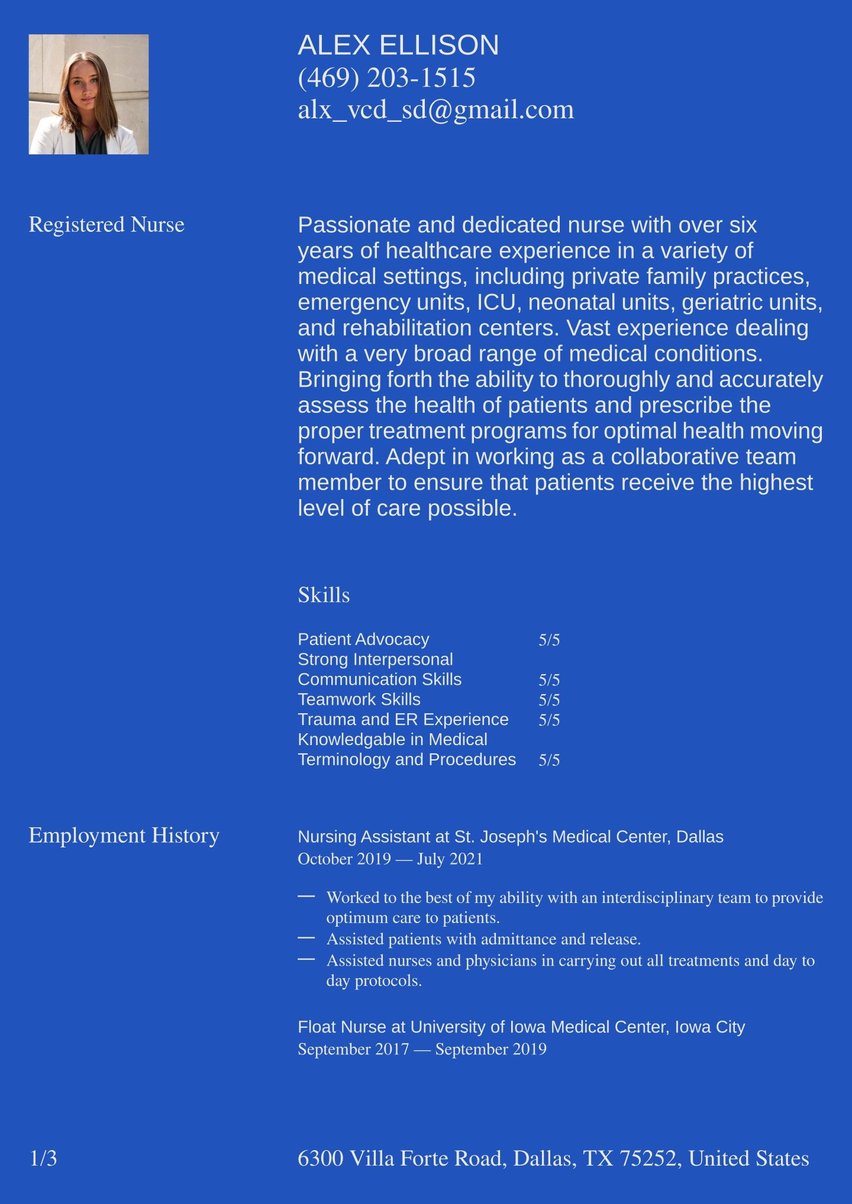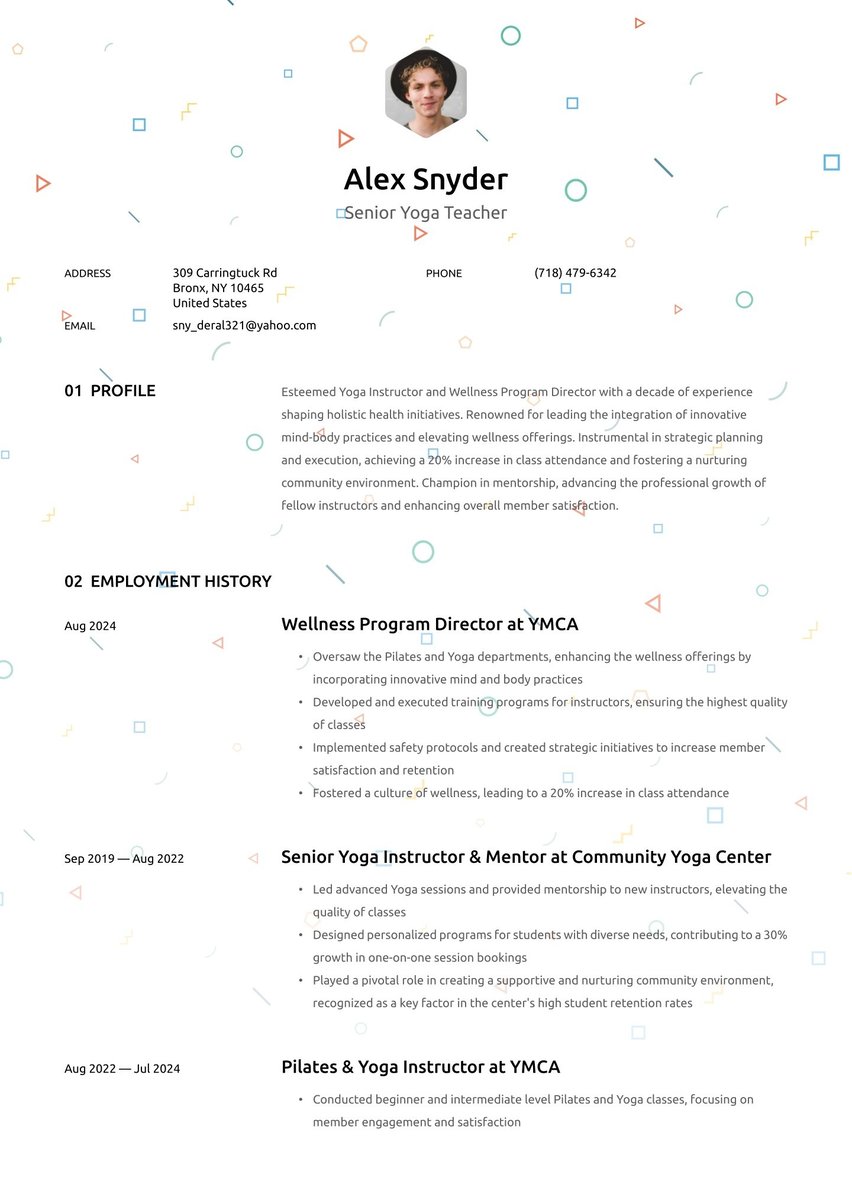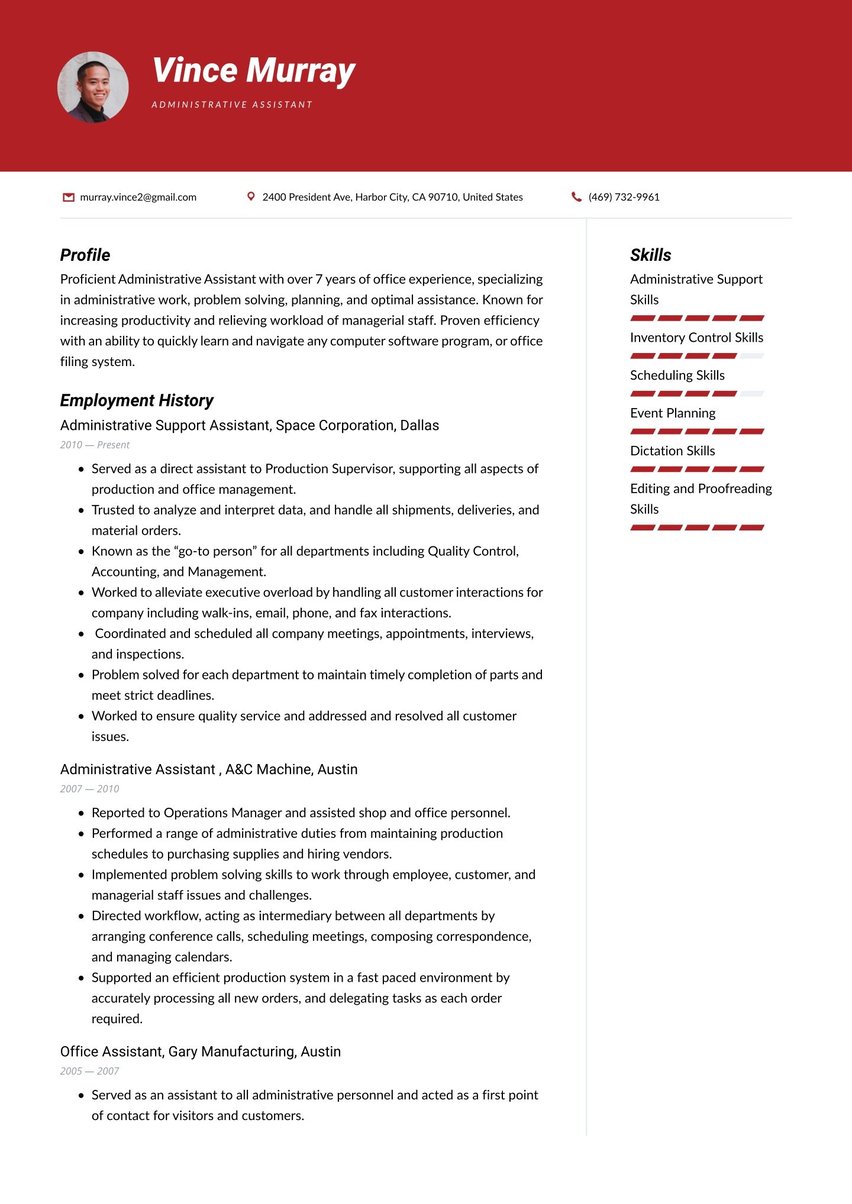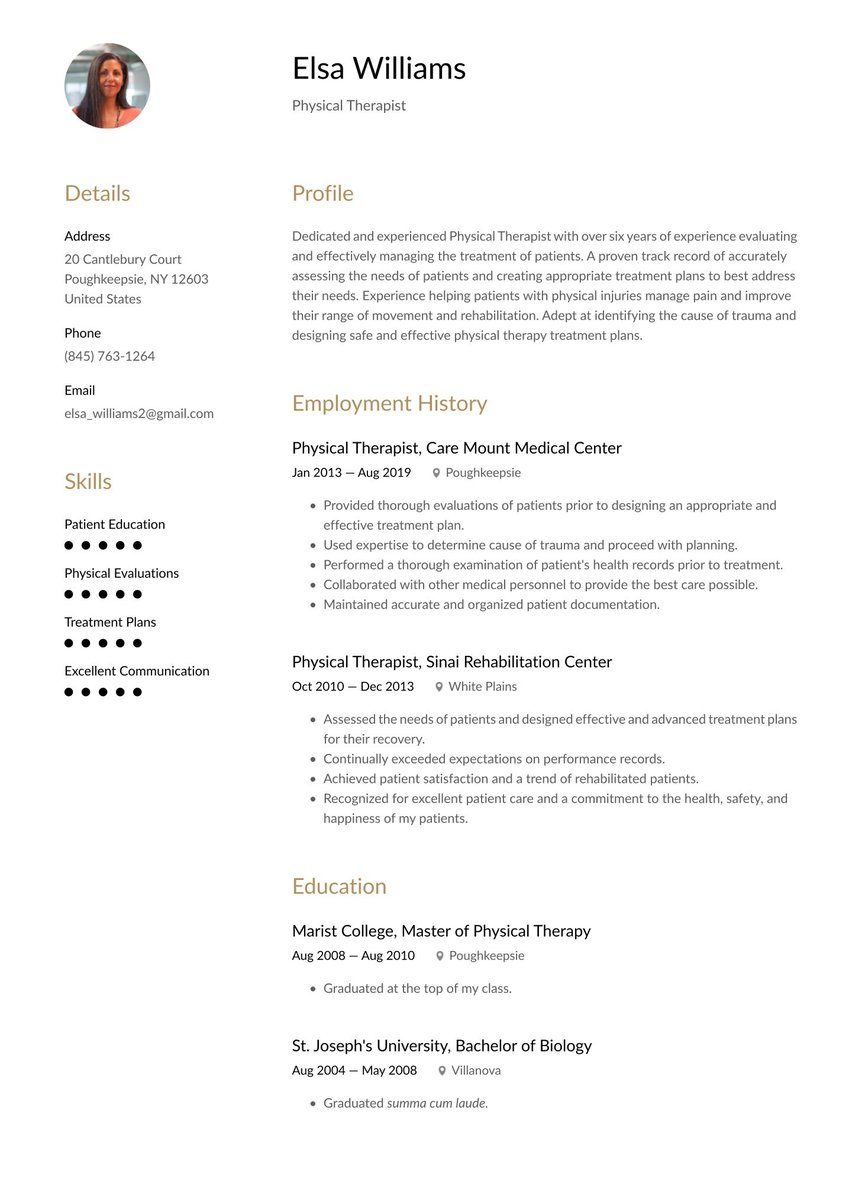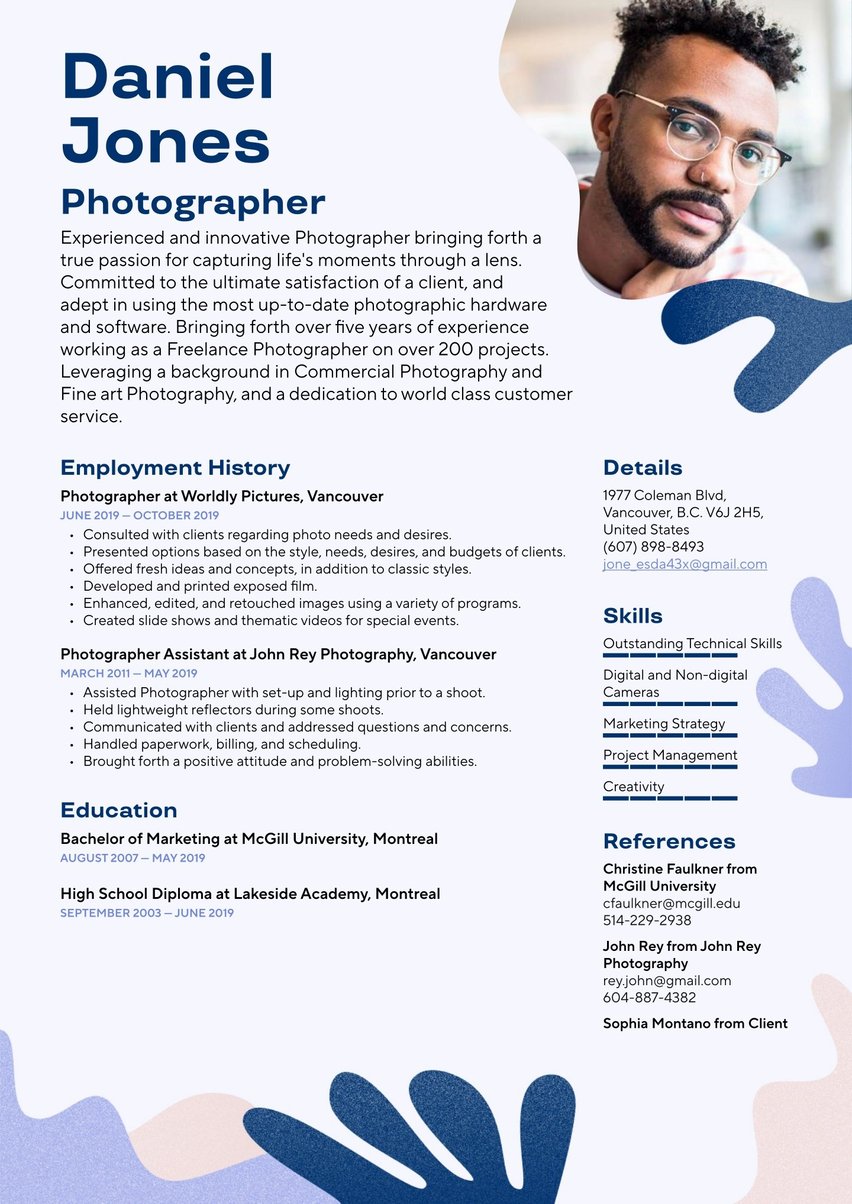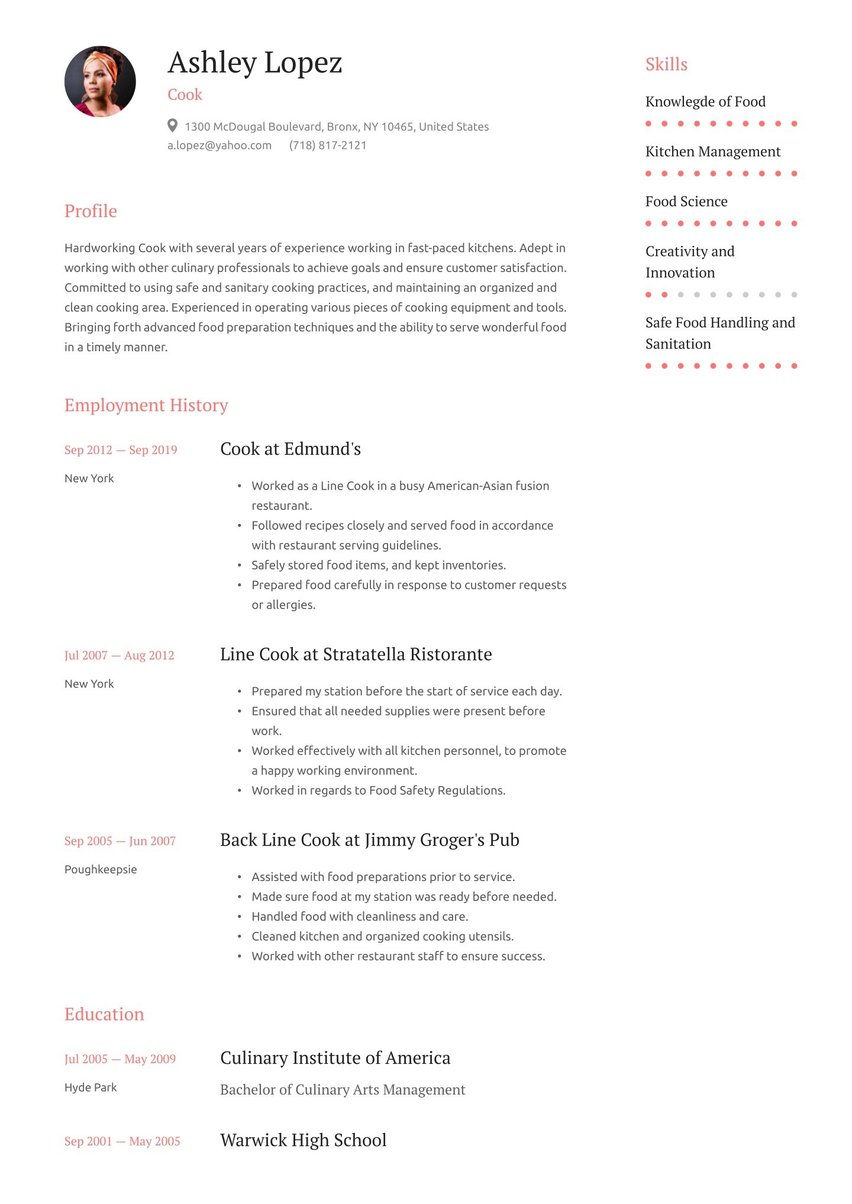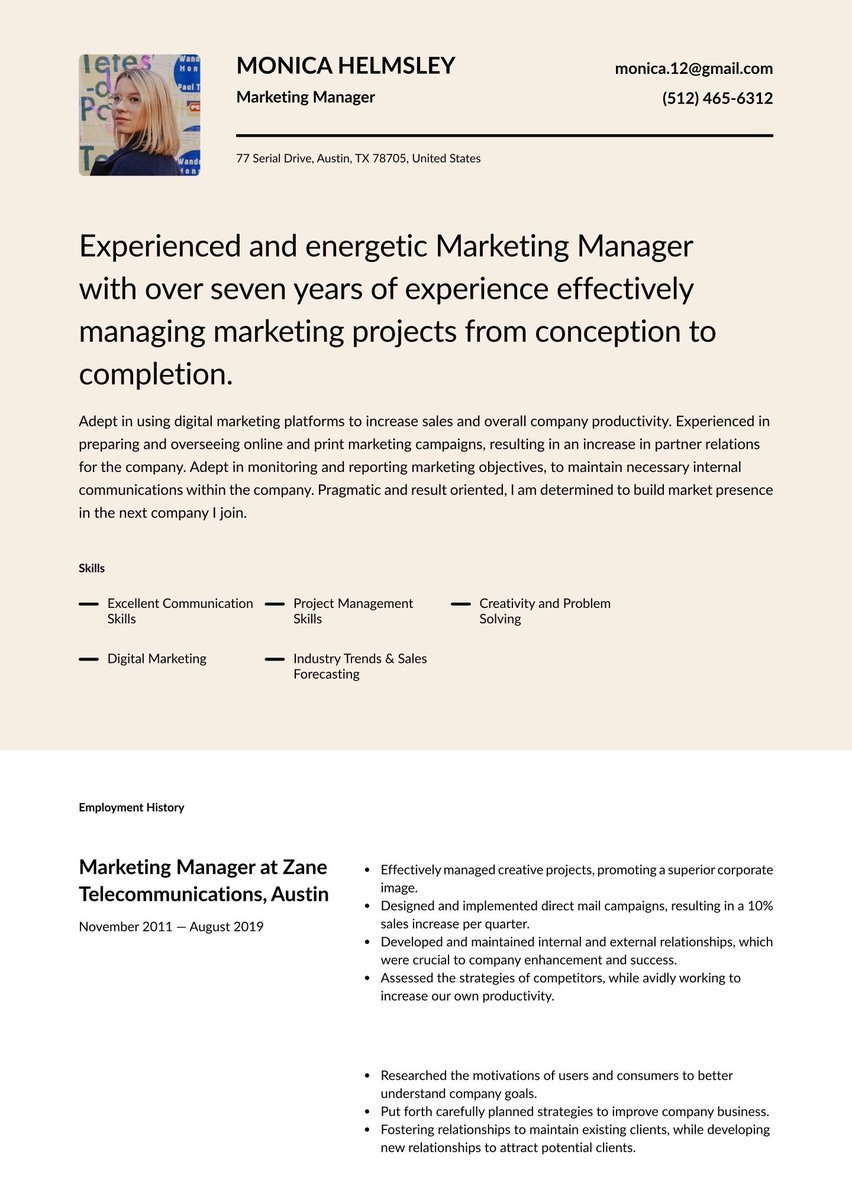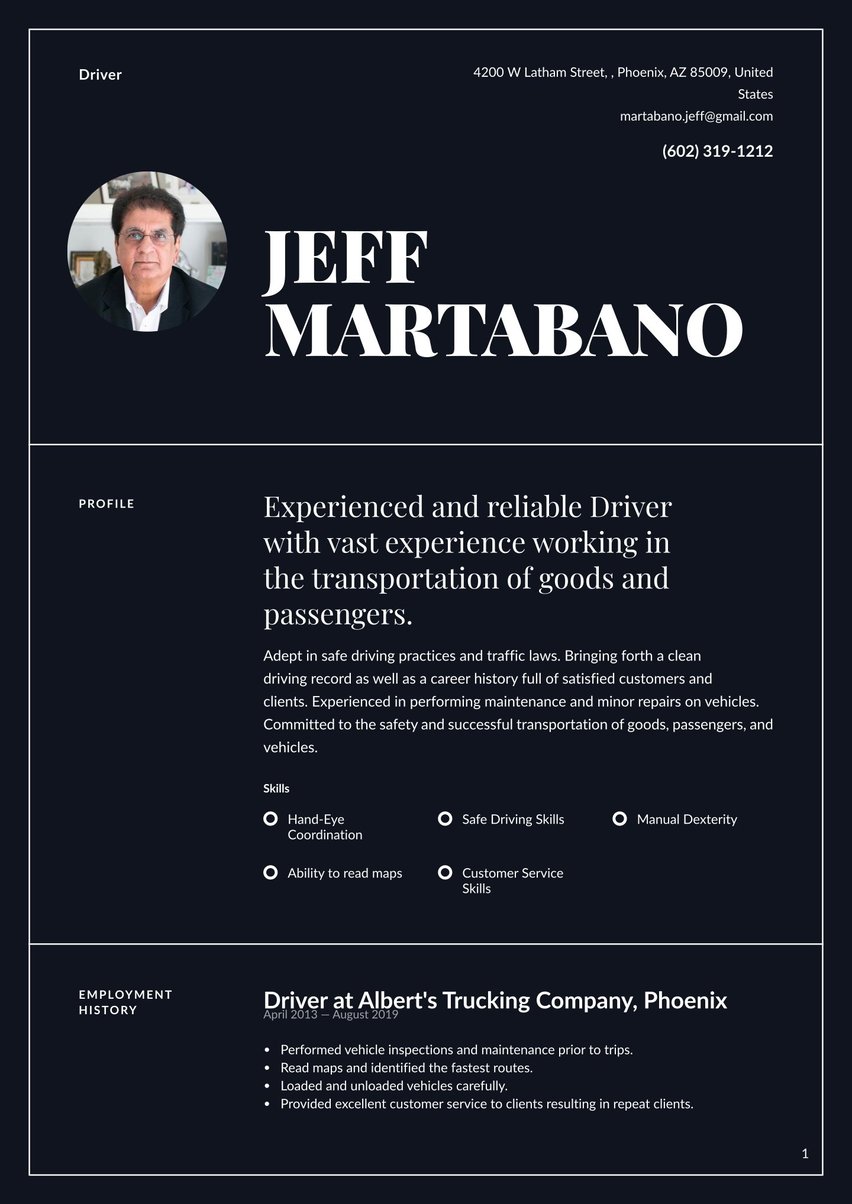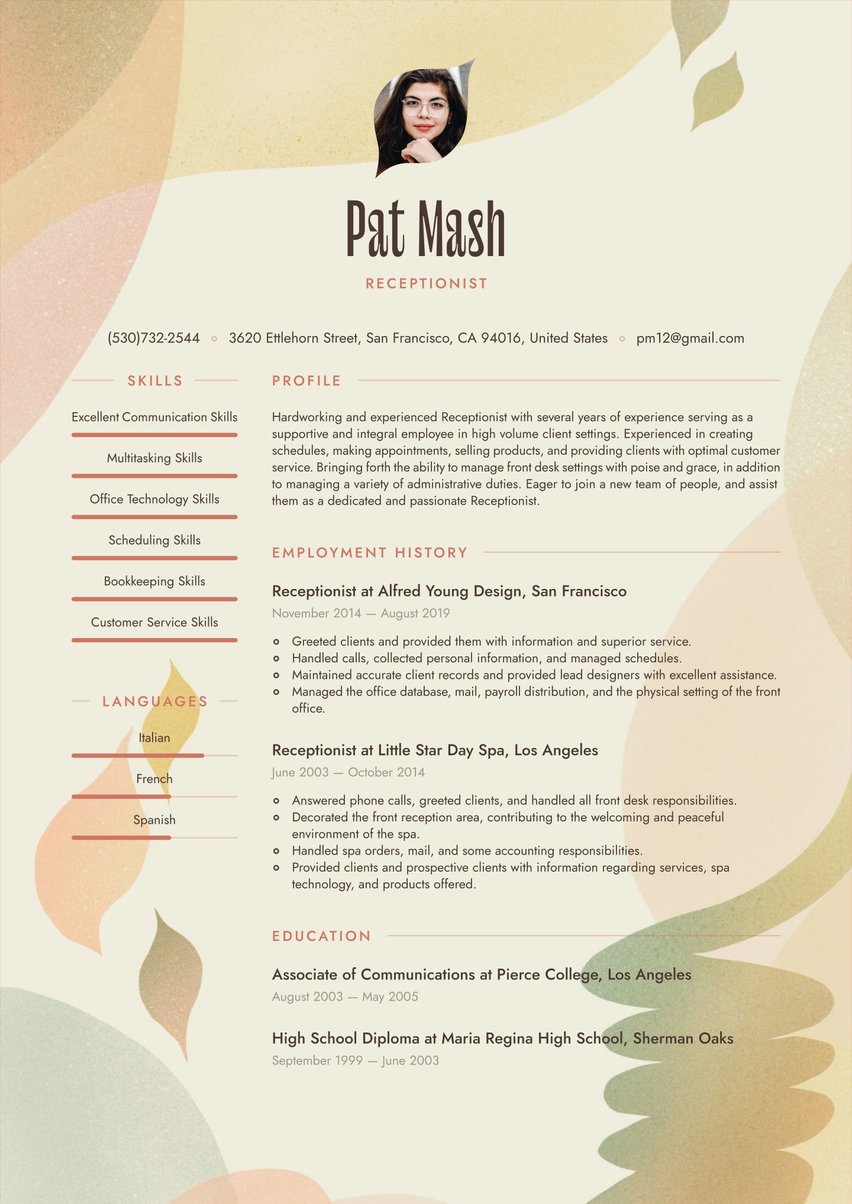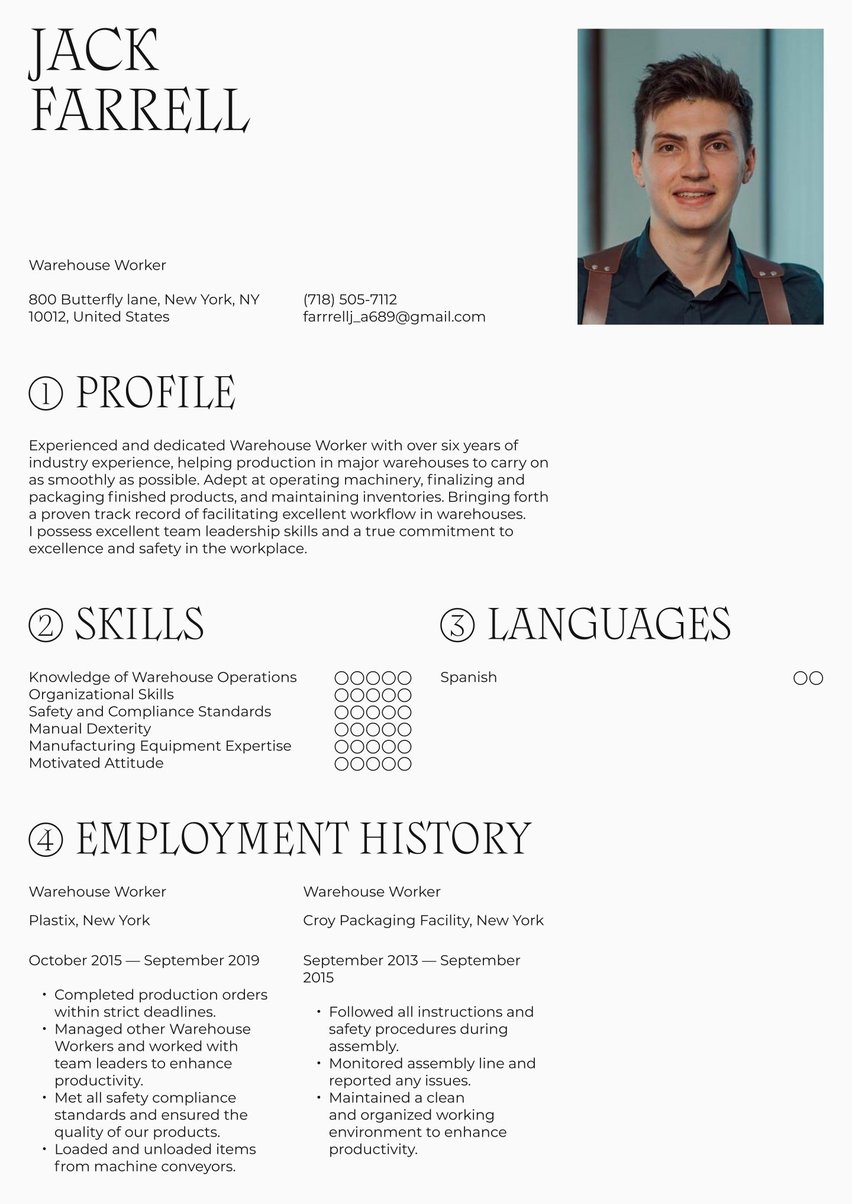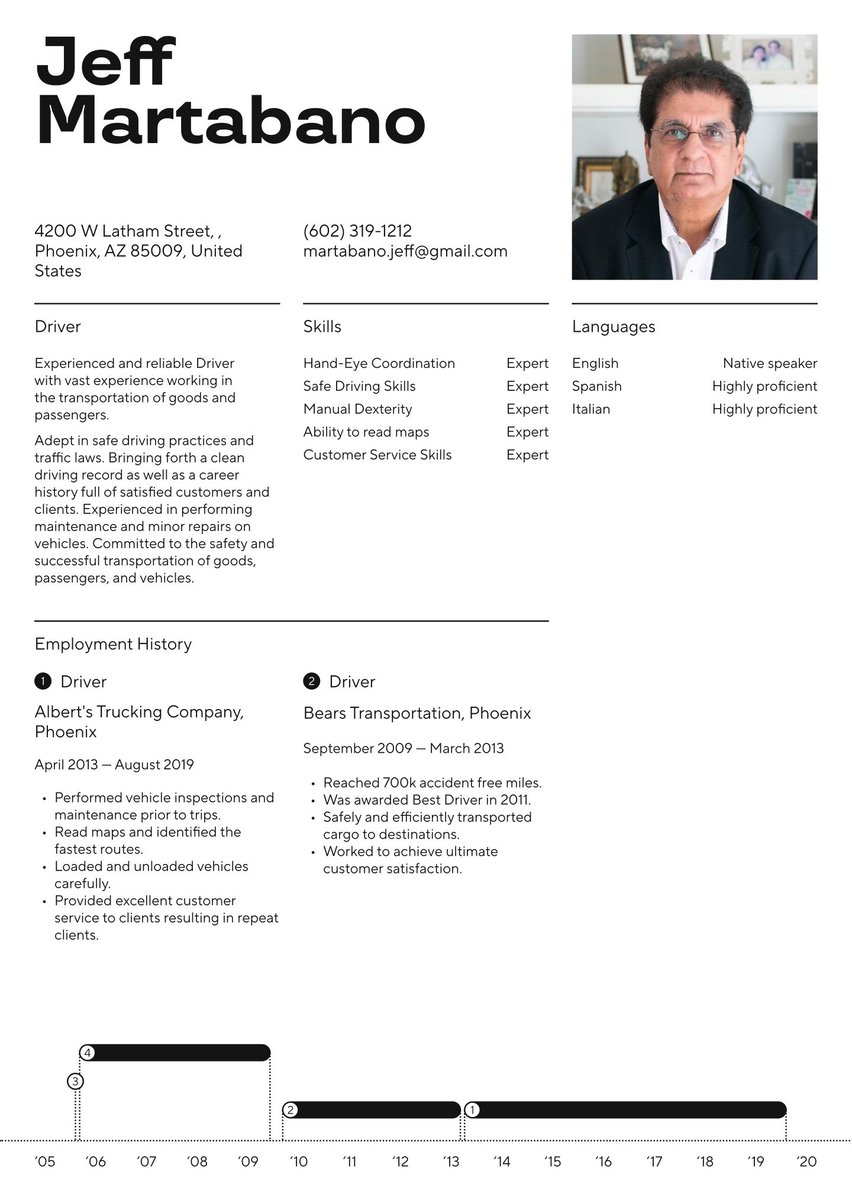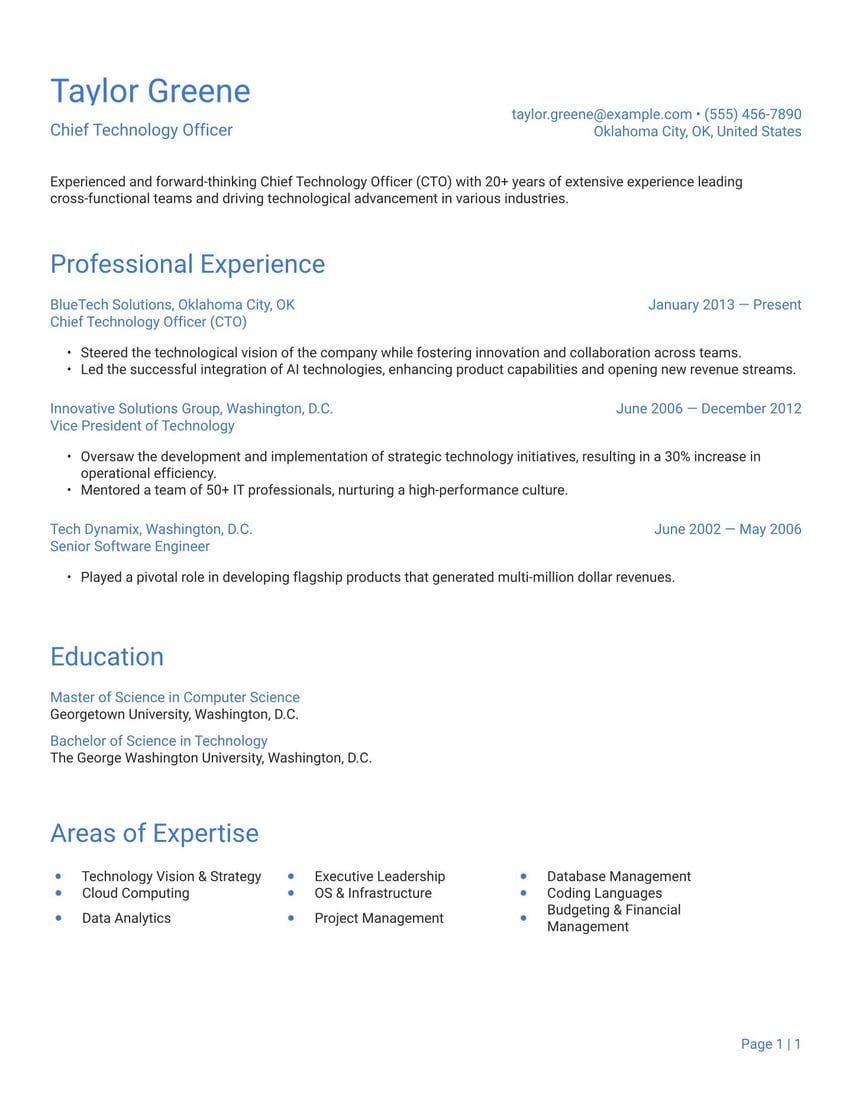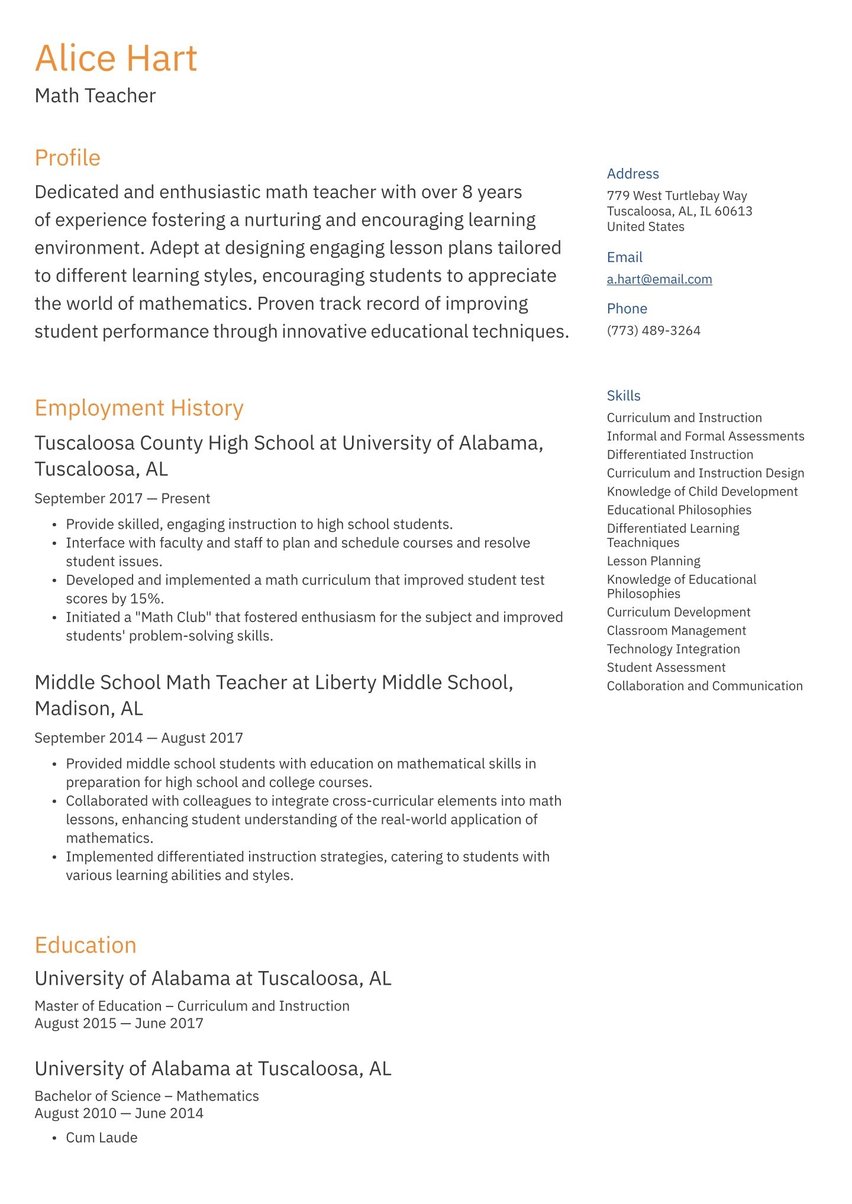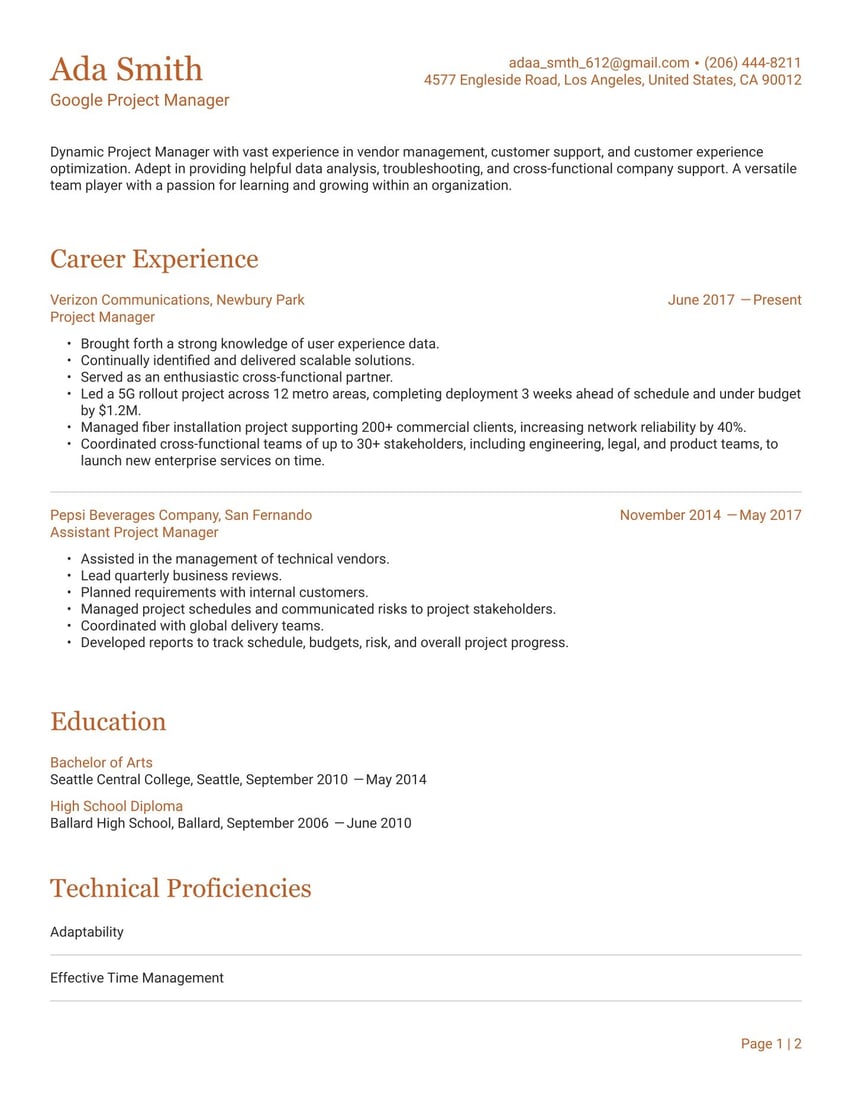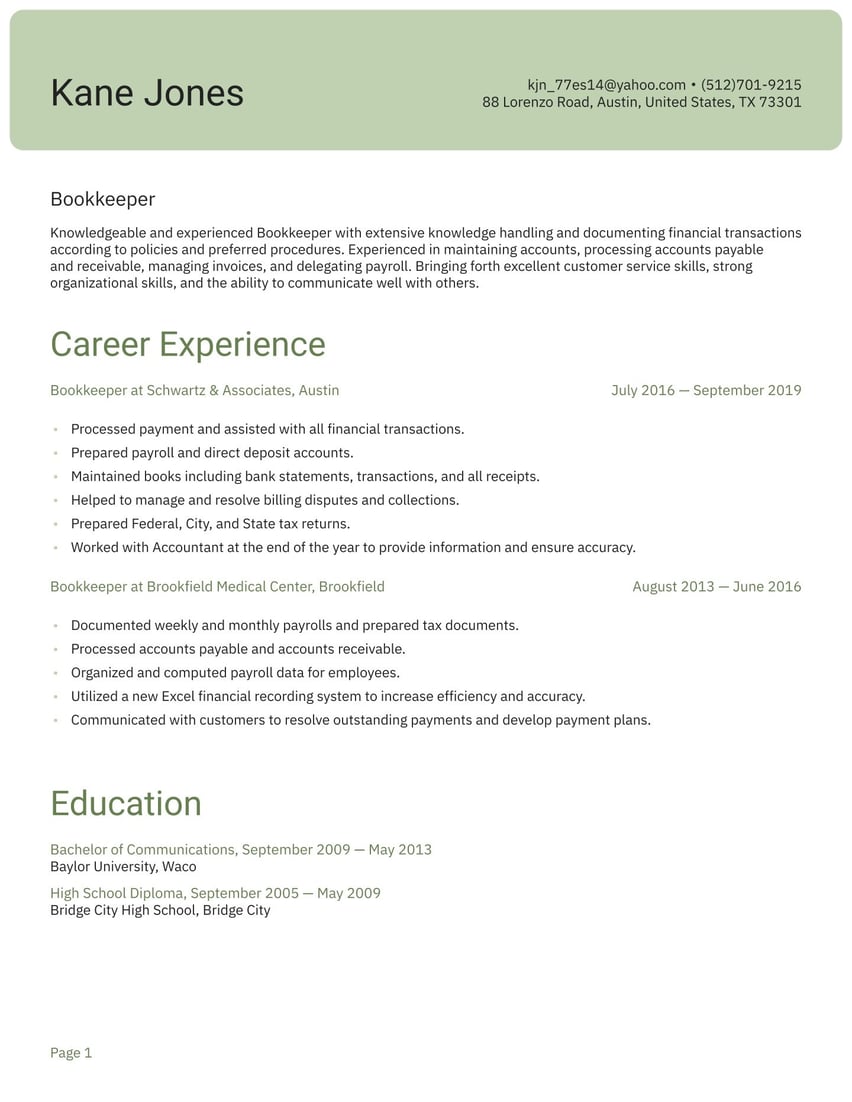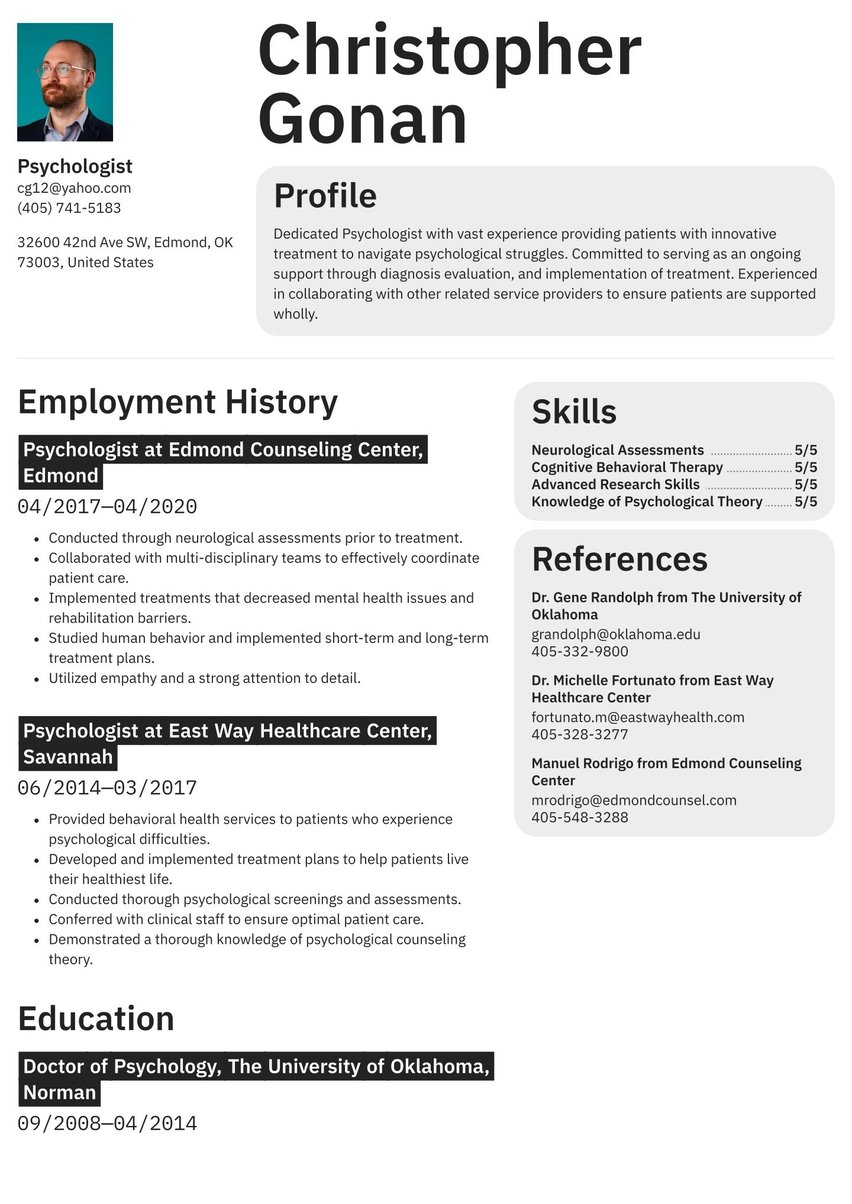Dependable and attentive Machine Operator with 19 years of experience in industrial manufacturing. Well-versed in industry compliant safety standards. Certified in class-L machine maintenance and repairs. Managed and operated moving equipment, direct feeds, radial drill presses, power presses and variable speed belt machines. Possessing a strong work ethic and commitment to efficiency and process. A team player with an upbeat attitude and a willingness to stay until the work is done.
07/2014 - 09/2019, Machine Operator, Catskills Products Inc., Bohemia
- Operate radial drilling machine in 23-part production process in automotive part manufacturing plant.
- Build an average of 105 components per hour and identify an efficiency that led to a 23% production increase.
- Maintain specialty tools and repairs for 13 milling machines under my direct supervision, including cleaning and part ordering.
- Received class-L machinery safety certification.
- Adept at machine set up and quality testing.
04/2006 - 12/2013, Machine Operator, Aztec Manufacturing Corp., Wichita
- Fed a direct feed machine in a manner consistent with a fast-paced production schedule.
- Perfect attendance record.
- Created templates to use and fit molds into to produce less.
- Logged over 5,000 hours on both a drill and power press performing repeated actions in a consistent and reliable manner.
- Certified in drill and power press safety standards and operations.
- Maintained a clean work environment free of debris.
03/2000 - 07/2005, Fork Lift Operator, Eagle Press Publishing, Weston
- Responsible for organizing and transporting all pallets of printed product onto delivery trucks in an orderly and timely manner.
- Implemented safety regulation standards to ensure a safe workplace.
- Maintained and repaired machines as needed.
- Received and stored production materials in appropriate areas.
- Completed all daily and quarterly inventory reports.
08/1995 - 05/1999, High School Diploma, Catskill Senior High School, Catskill
- English
- Spanish
- Workplace Safety Standards
- Advanced Mechanical
- Excellent Physical Stamina
- Time Management
- Knowledge of Hand and Power Tools
Do you want to shift gears in your career? A machine operator resume is your key to getting a new job on a production line.
Machine Operator resume examples by experience level
When writing a resume for a machine operator job, you need to showcase your proficiency, productivity, and precision. Think of your resume as the blueprint of your career. With the right tools, you can show an employer your technical expertise and commitment to safety.
Your resume should outline your experience in the manufacturing field, the technical training or certifications you’ve completed, and your skills in machine operations. Set your resume apart by describing the achievements you’ve had in other jobs, such as high output or impeccable accuracy.
A well-written resume can help you land your next machine operator job and keep the wheels of industry turning!
Resume guide for a machine operator resume
With resume.io, you can manufacture a resume that’s sure to impress employers. We offer resume examples for over 500 professions, along with an easy-to-use resume builder to help you make your own.
This resume guide and our machine operator resume examples will go over the following topics:
- How to write a machine operator resume
- Choosing the right format for your resume
- Adding your contact information
- How to write a noteworthy summary
- Describing your manufacturing experience
- Listing your education and skills
- How to choose the best resume design and layout
- What the job market looks like and how much you can earn in the role
How to write a machine operator resume
Before you start working with a new machine or system, you take time to understand how it works. Do the same before you begin writing your resume. A resume for a machine operator should have these sections:
- A resume header
- A resume summary (also known as a profile or personal statement)
- An employment history section
- A resume skills section
- An education section
Your resume should reflect your understanding of production procedures and machine operations. It should also highlight your other relevant skills, such as communication and teamwork.
Besides describing your qualifications, your resume should show an employer what you can bring to their team. Tighten the bolts by tailoring your resume to the job description. Follow these other tips to make your resume stand out:
- Describe your achievements. Don’t just list the tasks you’ve completed in other jobs. Instead, focus on what you’ve achieved as a machine operator. For example, did you streamline efficiencies or minimize waste? Highlight those accomplishments on your resume.
- Write a new version for each job. Adapt your resume to each job you apply for. Make sure it addresses a company’s specific requirements and needs. You don’t need to rewrite your resume every time you apply, but you should change some details here and there.
- Use keywords. Many companies use applicant tracking system (ATS) software to scan resumes. Include keywords from the job description to make sure your resume makes it through the ATS.
Optimize for the ATS
Unless you’re applying at a small shop, it’s likely your resume will go through ATS software. These systems rank resumes based on keywords and send the top-scoring applications to the hiring manager’s desk. It might sound daunting, but you can use keywords to increase your chances of beating the ATS.
For example, consider a job description with these requirements:
- Operate CNC machines
- Routine maintenance
- Safety standards
- Blueprint reading
- Accurate production logs
When applying for this job, you can use those keywords in your resume summary, like this:
Detailed and driven machine operator with over five years of experience operating CNC machines to meet production quotas. Skilled in performing routine maintenance, blueprint reading, and following safety standards. Adept at maintaining accurate production logs while contributing to efficient operations.
To learn more about mastering the ATS, review our article on resume ATS optimization.
Choosing the right format for a machine operator resume
Our machine operator resume sample follows a reverse-chronological format, which is the most common type of resume. The reverse-chronological format begins with your current or most recent role and works backward to list all your relevant manufacturing experience.
Hiring managers are familiar with reverse-chronological resumes, so use this format if you have several years or more of machining experience. If you’re beginning your career or returning to the workforce after a gap, however, another format may work better for you.
The functional resume format prioritizes your skills over your work history. If you’re new to the field or changing careers, a functional resume can help you show an employer your drive and determination to succeed.
A combination, or hybrid, resume does what it sounds like: it combines parts of the reverse-chronological and functional resume formats. Use a combination resume if you have some experience, but have gaps in your work history. It’s also a good option if you’ve worked in other fields outside of manufacturing.
Include your contact information
Your resume header is one of the most important parts of your resume, because it tells an employer how to contact you. Place your contact information in a prominent spot to make it easily accessible.
In your resume header, include the following information:
- Full name and title. List your first and last name. After your name, list the title of the job you’re applying for, such as “machine operator” or “CNC machinist.”
- Professional email address. Make sure you have a professional email to give recruiters. Use a combination of your name or initials, such as firstname_lastname@email.com.
- Phone number. Provide the phone number where a hiring manager can reach you. Don’t forget to record a professional voicemail greeting if they need to leave a message.
- Location. You don’t need to provide your full mailing address on your resume but include your city and state.
- LinkedIn. If you have an updated LinkedIn profile, you can link to it in your resume header.
Don’t include:
- Date of birth. Providing your age can lead to potential discrimination, so leave it off your resume.
- Personal details. You don’t need to include other personal details, such as your marital status or Social Security number.
- Photo or headshot. There’s no reason to have a photo of yourself on your resume.
Roy Talbert
Machine Operator
r.talbert@email.com
(314) 391-3957
Baltimore, MD
linkedin.com/roytalbert
Roy Talbert
Machine Whiz
ravens_fan_for_life@email.com
(314) 391-3957
87 Frontmore Street, Baltimore, MD 21201
DOB: 9/13/1974
Make use of a summary
A well-written resume summary can set the gears in motion, convincing an employer to read the rest of your resume. This brief summary should describe your technical expertise and commitment to efficiency. Above all, it should make a case for why you’re a good candidate for the job.
In two or three sentences, explain the skills, experience, and knowledge you can bring to the role. Highlight your most impressive attributes as a machinist. For example, you may describe your ability to operate machines safely and follow all industry regulations. You can also showcase some relevant soft skills, such as reliability and work ethic.
As you write your summary, think about the skills you have that can set you apart from other candidates. Do you have a forklift license? Have you completed OSHA training? Can you troubleshoot complex equipment? Mention your unique qualifications to get an employer’s attention.
Additionally, the summary is a good place to convince an employer that you’d contribute positively to a warehouse, plant, or job site. Outline some outcomes or achievements you’ve had in your machining career. For example, you can mention your high accuracy rate or your strong production output.
Need some more ideas for your resume summary? Check out our related resume examples:
View our adaptable machine operator resume summary examples below.
Diligent Junior Machine Operator with foundational experience in industrial manufacturing and a strong grasp of safety protocols. Skilled in basic machine operation, maintenance, and efficiency techniques, with a track record of reliability and a perfect attendance record. Eager to apply mechanical skills and a methodical approach to problem-solving in a dynamic team environment, while continuously seeking opportunities for growth and skill enhancement.
Dependable and attentive Machine Operator with 19 years of experience in industrial manufacturing. Well-versed in industry compliant safety standards. Certified in class-L machine maintenance and repairs. Managed and operated moving equipment, direct feeds, radial drill presses, power presses and variable speed belt machines. Possessing a strong work ethic and commitment to efficiency and process. A team player with an upbeat attitude and a willingness to stay until the work is done.
Distinguished Production Supervisor with 19 years of industrial manufacturing expertise, leading operations and enhancing production efficiency by 23%. Adept in strategic efficiency optimization and senior-level machinery maintenance, ensuring peak performance with minimal downtime. Recognized for implementing comprehensive safety standards, driving innovation in high-precision mechanical operations, and fostering a culture of excellence in manufacturing environments.
Outline your machine operator experience: built for success
In your work experience section, provide a blueprint of your employment history. List all the relevant manufacturing jobs you’ve held, beginning with your most recent position. Include all your jobs from the past 10 to 15 years.
If you have more experience than that, add another section to your resume called “Other Experience.” In this section, list your additional jobs without providing employment dates. This tactic helps to prevent age discrimination.
For each job on your resume, write concise bullet points to describe your duties and achievements. Start each bullet point with a strong action verb. Some good verbs for a machine operator resume include “calibrated,” “assembled,” “maintained,” “programmed,” “inspected,” and “monitored.”
Make sure your bullet points focus on outcomes, not just tasks you completed. By emphasizing your contributions, you can make yourself stand out from other candidates. For example, a hiring manager might see many versions of these task-focused bullet points:
- Operated machinery on the production line.
- Followed safety protocols while operating machines.
- Inspected finished products for quality.
Those bullet points won’t make an employer pay attention to your resume. Instead, write results-focused bullet points, like these:
- Operated machinery efficiently to maintain a 95% uptime rate and meet daily production goals.
- Adhered to safety protocols to improve team compliance, resulting in no incidents over two years.
- Conducted detailed inspections of finished products, achieving a 98% accuracy rate for quality and compliance.
Do you see how those bullet points sound more impressive? When possible, include measurable data in your resume bullet points. For example, aim to quantify your productivity, efficiency, and accuracy to show a hiring manager your value as an employee.
Check out our employment history section from our machine operator resume example.
Machine Operator at Catskills Products Inc., Bohemia
July 2014 - Present
- Operate radial drilling machine in 23-part production process in automotive part manufacturing plant.
- Build an average of 105 components per hour and identify an efficiency that led to a 23% production increase.
- Maintain specialty tools and repairs for 13 milling machines under my direct supervision, including cleaning and part ordering.
- Received class-L machinery safety certification.
- Adept at machine set up and quality testing.
Machine Operator at Aztec Manufacturing Corp., Wichita
April 2006 - December 2013
- Fed a direct feed machine in a manner consistent with a fast-paced production schedule.
- Perfect attendance record.
- Created templates to use and fit molds into to produce less.
- Logged over 5,000 hours on both a drill and power press performing repeated actions in a consistent and reliable manner.
- Certified in drill and power press safety standards and operations.
- Maintained a clean work environment free of debris.
Fork Lift Operator at Eagle Press Publishing, Weston
March 2000 - July 2005
- Responsible for organizing and transporting all pallets of printed product onto delivery trucks in an orderly and timely manner.
- Implemented safety regulation standards to ensure a safe workplace.
- Maintained and repaired machines as needed.
- Received and stored production materials in appropriate areas.
- Completed all daily and quarterly inventory reports.
How to write a machine operator resume with no experience
Are you looking for your first job as a machine operator? Many employers will train candidates to operate machinery and equipment, but you need to get hired first. On your resume, emphasize your transferable skills and your eagerness to learn manufacturing processes.
While you may have never worked on a production line, you have transferable skills you can bring to the role. For example, if you’ve worked in a retail job, you can highlight your ability to follow directions and work as part of a team. Connect these skills to a machine operator position to prove you understand the role and know how to succeed.
You can also include other relevant qualifications on your resume. If you’ve studied engineering or mechanics, mention those classes in your education section. You can also highlight technical training or certifications you’ve completed, such as OSHA safety training.
When writing a machine operator resume with no experience, focus on the skills you have instead of the experience you lack. Present yourself as a strong entry-level candidate to get your first job in machining.
Include your key skills relevant to being a machine operator
A prospective employer will want to measure your skills to make sure you have the right ones for the job. In this section, include the requirements an employer has outlined in the job description.
Your skills section should list your hard skills, such as your ability to operate specific machines, comply with safety procedures, follow processes, and use software. Other machine operator skills for a resume include blueprint reading, quality control, equipment maintenance, and hand and power tools.
You should also mention some soft skills—the general personality traits that make you a reliable worker. These include communication, organization, and critical thinking.
Our resume builder allows you to choose from pre-written skills that you can quickly add to your resume. You can even describe your proficiency and add your own skills.
Here’s what the skills box looks like in our machine operator resume template.
Key Skills and Proficiencies
While a skills section is important, it shouldn’t be the only place where you’re discussing your strengths and abilities. Mention how you use your skills throughout your resume.
For example, in your summary and work experience section, you can highlight these traits:
- Technical proficiencies. Describe how you operate and maintain complex equipment, including the types of machines and outcomes you’ve achieved.
- Problem-solving skills. Detail how you use these skills to troubleshoot equipment malfunctions and keep operations running on time.
- Teamwork skills. Explain how you collaborate with other employees to streamline production and meet output goals.
If you’re not sure what skills to include, look at the job description for clues. Prioritize the skills an employer has specifically listed there.
Detail your education & machine operator certifications
Most employers only require machine operators to have a high school diploma. If that’s your highest level of education, list it on your resume. However, if you hold a postsecondary degree, you can remove your high school diploma.
In your education section, you can also list other relevant credentials you’ve earned. These may include:
- Certifications or coursework. For example, you can include OSHA safety training, CNC programming courses, and other technical training you’ve done.
- Apprenticeships. While optional, an apprenticeship can show an employer you’ve learned skills to operate, maintain, and troubleshoot equipment.
- Professional development. Continuing your education can prove your commitment to the manufacturing field. Mention your memberships in trade organizations or industry conferences you’ve attended.
Check out the education section from our machine operator resume example below.
High School Diploma, Catskill Senior High School, Catskill
August 1995 - May 1999
Pick the right resume layout & design for a machine operator resume
Your machine operator resume layout doesn't need to be fancy, but it should present you as a serious candidate. Choose a professional, clean design with minimal flair. A streamlined resume will show a hiring manager you’re committed to efficiency and ready to do a good job in the role.
Make sure the resume template you choose has clear sections for your skills, experience, and education. This layout will guarantee the ATS can scan your resume, which increases your chance of making it to the hiring manager’s desk.
An organized resume template can help you keep your headings, fonts, and other elements consistent. It can also help you balance text and white space so your resume is easy to read.
If you need a resume that shows off your operational excellence, take a look at our professionally designed resume templates. With resume.io, you can build a professional resume without having to format or design it yourself.
- Use common section names, such as “Employment History” and “Education,” to meet ATS standards.
- Limit your resume to one page.
- Use multiple colors, fonts, or eccentric design elements.
- Overwhelm the reader with large blocks of text or tiny margins.
Machine operator text-only resume example
Profile
Dependable and attentive Machine Operator with 19 years of experience in industrial manufacturing. Well-versed in industry compliant safety standards. Certified in class-L machine maintenance and repairs. Managed and operated moving equipment, direct feeds, radial drill presses, power presses and variable speed belt machines. Possessing a strong work ethic and commitment to efficiency and process. A team player with an upbeat attitude and a willingness to stay until the work is done.
Employment history
Machine Operator at Catskills Products Inc., Bohemia
July 2014 - Present
- Operate radial drilling machine in 23-part production process in automotive part manufacturing plant.
- Build an average of 105 components per hour and identify an efficiency that led to a 23% production increase.
- Maintain specialty tools and repairs for 13 milling machines under my direct supervision, including cleaning and part ordering.
- Received class-L machinery safety certification.
- Adept at machine set up and quality testing.
Machine Operator at Aztec Manufacturing Corp., Wichita
April 2006 - December 2013
- Fed a direct feed machine in a manner consistent with a fast-paced production schedule.
- Perfect attendance record.
- Created templates to use and fit molds into to produce less.
- Logged over 5,000 hours on both a drill and power press performing repeated actions in a consistent and reliable manner.
- Certified in drill and power press safety standards and operations.
- Maintained a clean work environment free of debris.
Fork Lift Operator at Eagle Press Publishing, Weston
March 2000 - July 2005
- Responsible for organizing and transporting all pallets of printed product onto delivery trucks in an orderly and timely manner.
- Implemented safety regulation standards to ensure a safe workplace.
- Maintained and repaired machines as needed.
- Received and stored production materials in appropriate areas.
- Completed all daily and quarterly inventory reports.
Skills
- Workplace Safety Standards
- Advanced Mechanical
- Excellent Physical Stamina
- Time Management
- Knowledge of Hand and Power Tools
Education
High School Diploma, Catskill Senior High School, Catskill
August 1995 - May 1999
Machine operator job market & outlook
Technology and automation have changed the manufacturing industry, but there’s still a need for skilled labor. Companies hire machine operators with varying skill sets and experience. If you’re interested in starting a career as a machine operator, there’s a position waiting for you.
- There will be around 35,400 job openings for machinists each year over the next decade, according to the U.S. Bureau of Labor Statistics (BLS).
- The BLS expects a 2% increase in the employment of machine operators between now and 2033.
- There are currently around 298,000 machine operators working in the United States.
What salary you can expect as a machine operator
The money you make as a machine operator will depend on your expertise and experience. Machinists make $50,840 per year on average. Typically, you can increase your salary by becoming more proficient and improving your output.
Depending on your employer, you may earn an hourly wage or a yearly salary. In some jobs, you can earn overtime pay if you work more than 40 hours per week.
Key takeaways for building a machine operator resume
A great machine operator resume can help you get noticed and land a job in this field. Show your effectiveness by highlighting your manufacturing achievements and measurable outcomes. Review the job description closely and incorporate keywords to master the ATS. You can follow our machine operator resume example for more guidance on creating a professional layout and design.
Kickstart your machine operator job search with our online resume builder, and then take it up a notch with resume.io.
Unlock 18 powerful tools to search for jobs, track your progress, prepare for interviews, and negotiate the best salary—all within our comprehensive career toolkit.


.jpg)

.jpg)




